Home Blog Presentation Ideas How to Give A Compelling Interview Presentation: Tips, Examples and Topic Ideas

How to Give A Compelling Interview Presentation: Tips, Examples and Topic Ideas
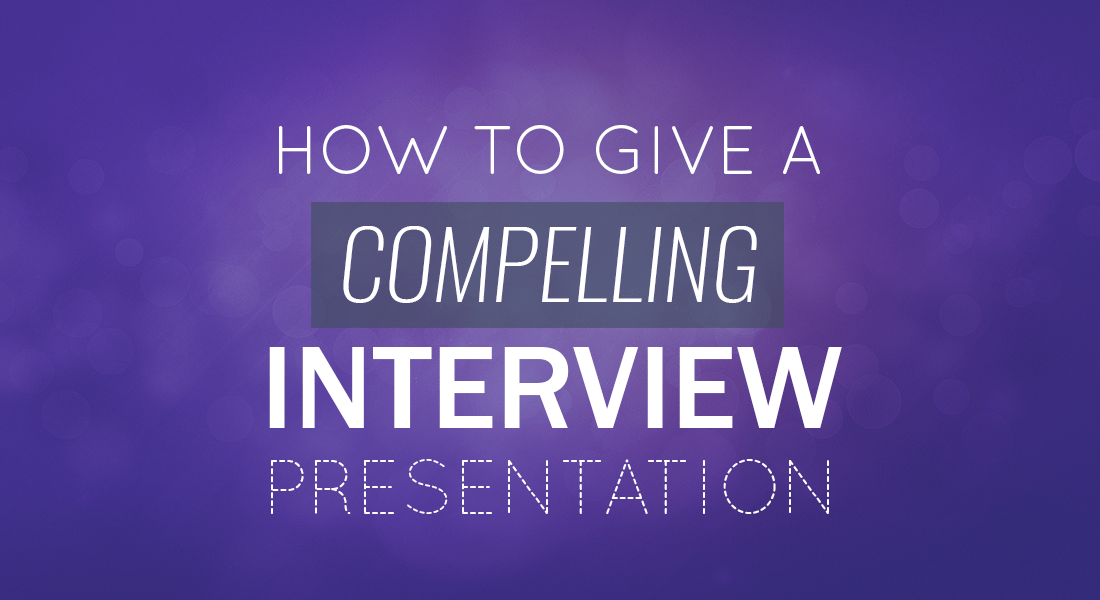
Interview presentations have now become the new norm for most industries. They are popular for sales, marketing, technology, and academic positions. If you have been asked to deliver one for your job interview presentation, prepare to build a strong case for yourself as a candidate.
Giving a general presentation is already daunting. But selling yourself is always the hardest. Spectacular credentials and stellar expertise don’t count much if you cannot present them clearly, which you are expected to do during your interview presentation.
So, let’s prime you up for the challenge. This post is action-packed with job interview PowerPoint presentation examples and will teach you the best way to do a presentation without stressing too much!
Table of Contents
What is an Interview Presentation?
What should an interview presentation look like, how to prepare for a job interview presentation: the basics, define your structure, what slides to include, how to come up with 15-minute interview presentation ideas, how to conclude your interview presentation, how to prepare for an interview: the final tips, what to do at the first interaction with the company elevator pitch for interview, presentation design tips, how to overcome presentation anxiety, tips on maintaining positive body language throughout the presentation, your final act.
An interview presentation, also known as a job interview presentation or interview portfolio, is a formal and structured way for candidates to showcase their skills, qualifications, and suitability for a specific job position during an interview. It goes beyond the typical Q&A format of interviews, allowing candidates to demonstrate their expertise through a prepared presentation. Employers commonly request interview presentations in various industries, such as sales, marketing, technology, academia, and management roles. These presentations serve several important purposes: assessing communication skills, evaluating cultural fit, measuring expertise, analyzing problem-solving skills, and observing presentation skills. While the specific format and requirements of interview presentations vary widely, candidates typically receive guidelines from the employer regarding the topic, duration, and any specific criteria to be addressed. In essence, an interview presentation is an opportunity for candidates to make a compelling case for their candidacy, showcasing their qualifications, experience, and suitability for the job. It requires careful preparation, effective communication, and the ability to engage and persuade the interview panel. A successful interview presentation can significantly enhance a candidate’s chances of securing the desired position.
Think of your interview presentation as a sales pitch.
Your goal is to convince the human resources team that you are the best candidate. The kick here is that you will present to a warm audience – you already impressed them enough with your resume to be called in for an interview. We recommend generating a strategy and presentation based on a 30 60 90 Day Plan .
Employers request interview presentations for a few simple reasons:
- To assess your communication and public speaking skills.
- To understand whether you are the right cultural fit for the company.
- To develop a better sense of how well-versed you are in the domain .
So, your first job is ensuring your presentation fits the criteria. Review the company’s job description again and jot down all the candidate requirements. Take the time to read about their company values and mission. Be proactive and ask precisely what you should cover during your presentation.
Most interview presentations will differ in content and style, but here’s a quick example to give you more context:
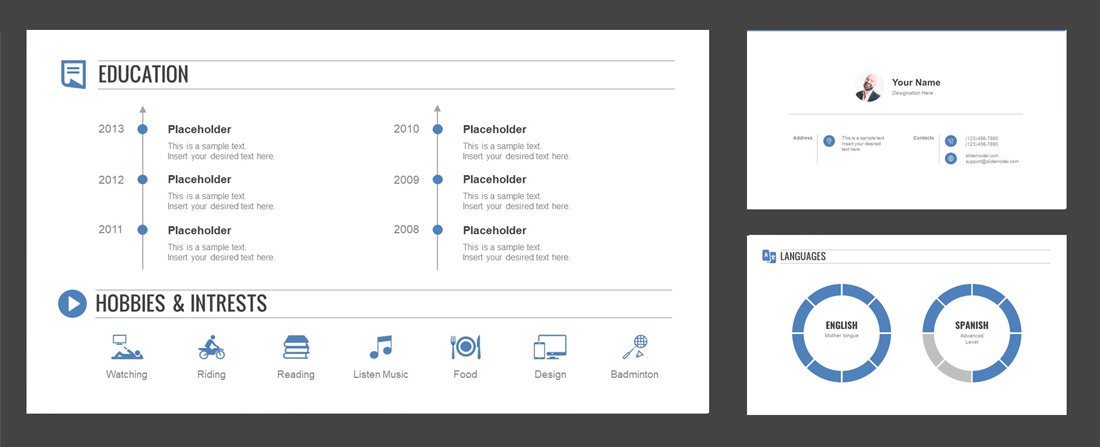
[ Use This Template ]
Before you get elbow-deep in designing that PowerPoint for a job interview presentation, do some scouting and reach out to the HR team with a few questions.
You want your presentation to be on-point and technically accurate, so ask your contact the following:
- How long should an interview presentation be? Fifteen minutes is the golden standard, though some employers may ask to cut it down to just 10 minutes or extend it to 20-25.
- Who exactly will be present? A conversational presentation would undoubtedly be welcomed by your peers and a team leader but may appear too casual for the senior managers or board of directors.
- Does the HR team have a particular agenda in mind? Ask some leading questions to understand what kind of skills/experience they want you to demonstrate. If needed, use a proper agenda slide to include your content.
- What’s the IT setup? Should you bring your laptop? Do you need an adapter to connect to their projector? What kind of presentation software have they installed – PowerPoint, Keynote, Google Slides?
Everyone appreciates clarity.
In fact, 89% of professionals state their ability to communicate with clarity directly impacts their career and income.
Your presentation should flow, not rumble. Make sure that your story is easy to follow and your key message is easy to digest, remember, and pass on. If you want people to retain your main points, opt for the following structure:
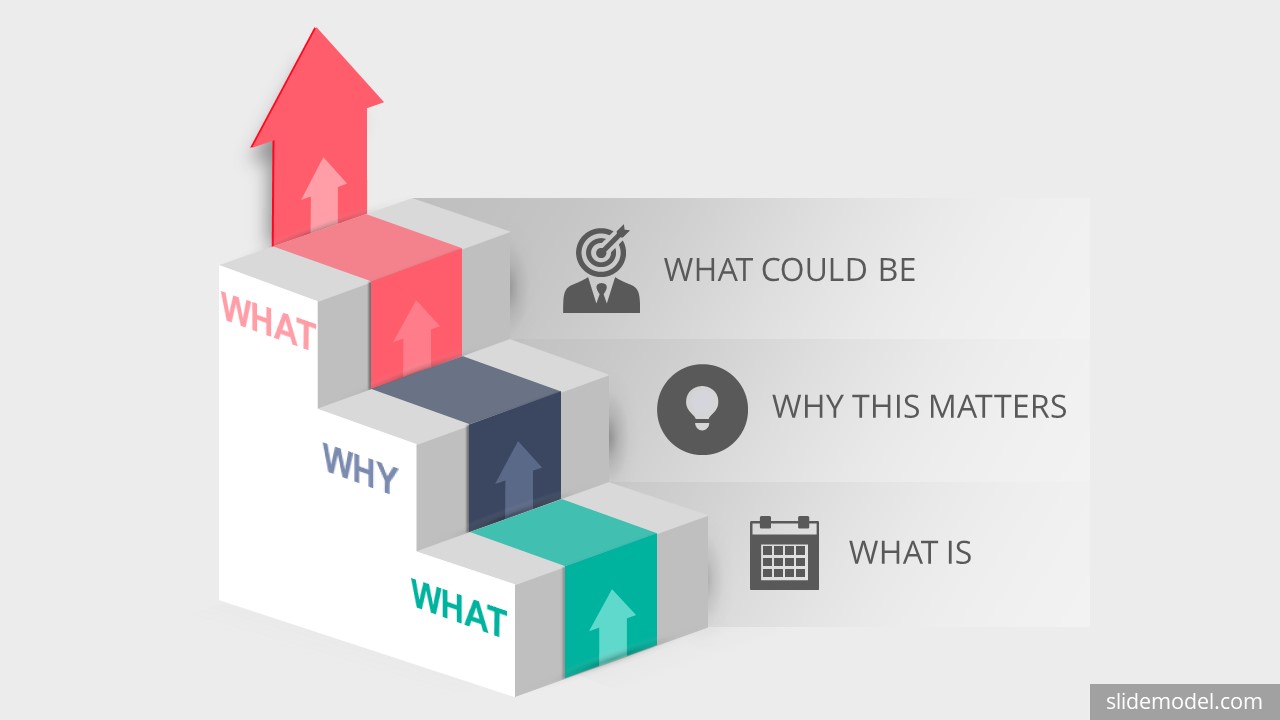
Source: this infographic was created with 3 Steps Editable 3D Ladder Infographic
Here’s an interview presentation example styled in this fashion.
What is: The company’s presence in the Middle East is low. Only 15% of revenues come from the top markets.
Why this matters: The UAE fashion market alone is expected to grow at a CAGR of 21% during the next five years.
What could be: I have helped my previous employer open a flagship store in Dubai, have a lot of industry contacts, and am familiar with the local legislature. Your brand can expect a 17% revenue growth within one year of opening.
You can find even more ideas for designing your presentations in this post .
The choice of slides will largely depend on whether you are asked to talk about yourself or present on some task that you will be required to do as part of your job (e.g., create marketing campaigns).
Most interview presentation templates feature the following slides:
- Opening Slide
- Quick Bio/Personal Summary
- Career Path
- Education timeline
- Key Skills and Expertise
- Case studies/examples of the problems you have solved at your past jobs
- Your vision for your future role.
- What exactly can you bring in as the candidate (we will come back to this one later on!)
Can’t figure out where to start? Check out our AI PowerPoint generator to create an entire interview slide deck in a couple of clicks, or just download a job interview template . Swipe down to learn from the either of the following job interview presentation samples.
Typically, a talent acquisition team will suggest broad interview presentation topics for you. For example, if you are applying for a sales position, they may ask you to develop a sales presentation for some product (real or imaginary).
Some employers will request a short presentation about you or your hobbies to understand whether you are a good “fit” for the team and share the company’s values. Remember this: your audience will be assessing your aptitude for the role, no matter which topic you were given.
In fact, the interviewers at this point don’t care that much about your experience and skills. They want to know how you can apply those to solve the company’s pressing problems – meet sales targets, improve ROI from social media marketing or help them earn more revenue.
Your job is to make an educated guess… predict the most wrenching problem, and pitch your “magic pill” during your interview presentation.
I know what you are thinking – but how do I find the right opportunity/problem to tackle?
Businesses across different industries pretty much struggle with the same generic challenges related to either of the following:
Your topic should clearly address one of these areas and offer a potential roadmap for solving some specific problem within it.
Let’s say that you are applying for a sales role. Clearly, you will want to tackle the “customer audience” set of problems. To refine your idea, ask yourself the following questions:
- Can you think of a new customer segment the company should target? Who are they, what do they want, and how you can help the company reach them?
- Do you have a network or experience to identify and pitch new clients?
- Can you think of new collaboration opportunities the company could use to attract a whole new niche of customers?
So a sample job interview presentation about yourself should include a series of Problem & Solution Slides , showing exactly how you will address that issue if the company hires you.
Here’s another PowerPoint presentation about yourself for job interview example worth using – incorporate a case study slide, showing how you have successfully solved a similar problem for your past employer.
Wrap up your presentation by laying out the key steps the company needs to take. Give an estimate of how much time it will take to tackle the problem, and what changes/investments should be made.
Your conclusion should tell this: “Hire me and I will solve this problem for you in no time!”.

Source: StockSnap
Dial-Up Your Power
Take a deep breath and strike a “power pose” before you enter the room.
According to her research, power posers performed better during interviews and were more likely to get hired. Another study also proved this theory: unaware judges gave major preference to the power-primed applicants. So yes, pep talks do work!
The first 30 Seconds Count The Most
What you do and say in the first 30 seconds will make the most impact. Psychological research shows that listeners form opinions about your personality and intelligence in the first 30 seconds of the interview. So be sure to start with a compelling opening, framing exactly how you want to be perceived.
Try To Appear Similar to the Interviewer
Lauren Rivera, a professor from Kellogg School, came to the conclusion that interviewers tend to hire “people like them” .
Even the top human resource management folks fall for this bias and tend to base their evaluations on how similar a candidate is to them, instead of trying to decide whether the person’s skill set is ideal for the position. So to be liked, you will have to act relatable.
Back up your statements with facts
To deliver a presentation with a bang, you can make use of pre-analyzed facts to support your hypothesis. Make sure to do your homework, study the company and its competitive landscape, and do the professional work you would have done as a member of the company crew. At some point in your interview presentation, you go “off the script”, and pull out a bunch of documents, supporting your statements.

For example, you can give away a quick plan indicating a number of things the employer could do today to save money, even if they don’t hire you. Make sure to be meticulous; your work will speak for you. But giving away this work will show the employer your commitment, skills, and focus.
And that’s exactly how to make your job interview presentation stand out. Most candidates just ramble about their skills and past career moves. You bring specificity and proof to the platter, showing exactly what makes you a great hire fair and square.
Within a selection process, there are many interactions (interviews and dynamics) that you must successfully complete in order to be the next selected candidate. One of your objectives in this first interaction should be to generate a great first impression in the company. For this, we recommend using the Elevator Pitch for Interview technique.
The Elevator Pitch for Interview will allow you to present yourself in a solid and professional way in less than 60 seconds, in order to generate an outstanding first impression.
What is an Elevator Pitch for an Interview?
The Elevator Pitch is a condensed speech about yourself that aims to generate engagement in no more than 60 seconds. Entrepreneurs widely use this type of speech to persuade investors and job seekers in job interviews. Your Elevator Pitch for the Interview will generate a great first impression to the employer and be better positioned than other candidates. If your goal is to make a convincing presentation in a job interview, your Elevator Pitch needs to be well crafted.
How to Make an Elevator Pitch for an Interview
There are many ways and tips to make an excellent Elevator Pitch for a job interview. This section provides you with essential advice to make your interview more convincing.
Identify your target
You need to know to whom you are presenting yourself. Is it a recruiter? or an executive?. Your Elevator Pitch will change depending on the receiver.
Comprehend the needs of the hiring company
Make an advanced study about the search requirements for the job position. Identify your strengths. Highlight them. Demonstrate your experience. Identify your weaknesses. Show that you have a profile that seeks constant improvement
Create a clear, concise, and truthful Elevator Pitch
This point is critical. Your Elevator Pitch must be clear, concise, genuine, and impactful. Go from less to more. Generate a real hook in your audience. Try not to go off-topic or talk too much, and be brief in everything you want to say.
Speak naturally and confidently
If you can speak fluently and naturally, you can show a confident profile. Show you know what you are talking about and what you want.
Elevator Pitch Example for Job Seekers
This section illustrates an Elevator Pitch Example targeted to Recruiters. It will help you put together your own.
“My name is [NAME]. After graduating with a degree in Business Administration, I have spent the last five years accumulating professional experience as a Project Assistant and Project Manager. I have successfully managed intangible products’ planning, strategy, and launch these past few years. I was excited to learn about this opportunity in Big Data – I’ve always been passionate about how technology and the use of information can greatly improve the way we live. I would love the opportunity to bring my project management and leadership skills to this position.”
Ways to avoid common mistakes in your Elevator Pitch
Keep in mind the following points to avoid making mistakes in your Elevator Pitch for an Interview.
Don’t hurry to make your Elevator Pitch
The Elevator Pitch lasts approximately 60 seconds. Do it on your own time and naturally, as long as you make it clear and concise.
Do not always use the same Elevator Pitch for all cases
One recommendation is not to repeat the same Elevator Pitch in all your interviews. Make changes. Try new options and ways of saying the information. Try different versions and check with your experience which generates more engagement and persuasion.
Make it easy to understand
Articulate your pitch as a story. Think that the person in front of you does not know you and is interested in learning more about your profile. Don’t make your Elevator Pitch challenging to appear more sophisticated. Simply generate a clear and easy-to-understand narrative, where all the data you tell is factual and verifiable.
Don’t forget to practice it
Practice is the key to success. Your Elevator Pitch for Interview will become more professional, convincing, and natural with practice.
How to End an Elevator Pitch?
An essential aspect of ending an Elevator Pitch for an Interview is demonstrating interest and passion for the position. You have already presented yourself and established that you have the necessary background for the job. Closing with phrases revealing passion and attitude will help reinforce your pitch.
We recommend you use expressions such as:
“I have always been interested and curious about the area in which the company operates, and it would be a great challenge for me to be able to perform in this position.”
“I have been interested in moving into your company for a while, and I love what your team is doing in IT.”
“I would like to advance my career with an employer with the same values. I know that thanks to my profile and experience, I can make excellent contributions to your company.”
Keep It Visual: Use visuals like images, graphs, and charts to convey your points effectively. Visuals can make complex information more accessible and engaging. Consistency Matters: Maintain a consistent design throughout your presentation. Use the same fonts, color schemes, and formatting to create a cohesive look. Practice Timing: Be mindful of the allotted time for your presentation. Practice to ensure you can comfortably cover your content within the time limit. Engage the Audience: Incorporate elements that engage the audience, such as questions, anecdotes, or real-world examples. Interaction keeps the interview panel interested. Use White Space: Avoid cluttered slides. Use white space to create a clean and uncluttered design that enhances readability.
Presenting during a job interview can be nerve-wracking. Here are some strategies to overcome presentation anxiety:
- Practice: Practice your presentation multiple times, ideally in front of a friend or mentor. The more you rehearse, the more confident you’ll become.
- Visualization: Visualize yourself by giving a successful presentation. Imagine yourself speaking confidently and engaging the audience.
- Breathing Techniques: Deep breathing can help calm nerves. Take slow, deep breaths before and during your presentation to reduce anxiety.
- Positive Self-Talk: Replace negative thoughts with positive affirmations. Remind yourself of your qualifications and the value you bring to the role.
- Focus on the Message: Concentrate on delivering your message rather than dwelling on your anxiety. Remember that the interviewers want to learn about your skills and experiences.
- Arrive Early: Arrive at the interview location early. This gives you time to get comfortable with the environment and set up any technical equipment you use.
Maintain Good Posture: Stand or sit up straight with your shoulders back. Good posture conveys confidence and attentiveness. Make Eye Contact: Establish and maintain eye contact with your audience to show confidence and engagement. Use Open Gestures: Employ open gestures, like open palms and expansive arm movements, to convey enthusiasm and openness. Smile and Show Enthusiasm: Genuine smiles and enthusiastic facial expressions demonstrate passion and eagerness. Control Nervous Habits: Be mindful of nervous habits like tapping or fidgeting, which can distract your audience and convey anxiety.
Stop fretting and start prepping for your interview presentation. You now have all the nitty-gritty presentation tips to ace that interview. If you are feeling overwhelmed with the design part, browse our extensive gallery of PowerPoint templates and cherry-pick specific elements ( diagrams , shapes , and data charts ) to give your interview presentation the top visual appeal.
Here you can see some 100% editable templates available on SlideModel that could be useful for preparing an interview presentation.
1. Versatile Self-Introduction PowerPoint Template
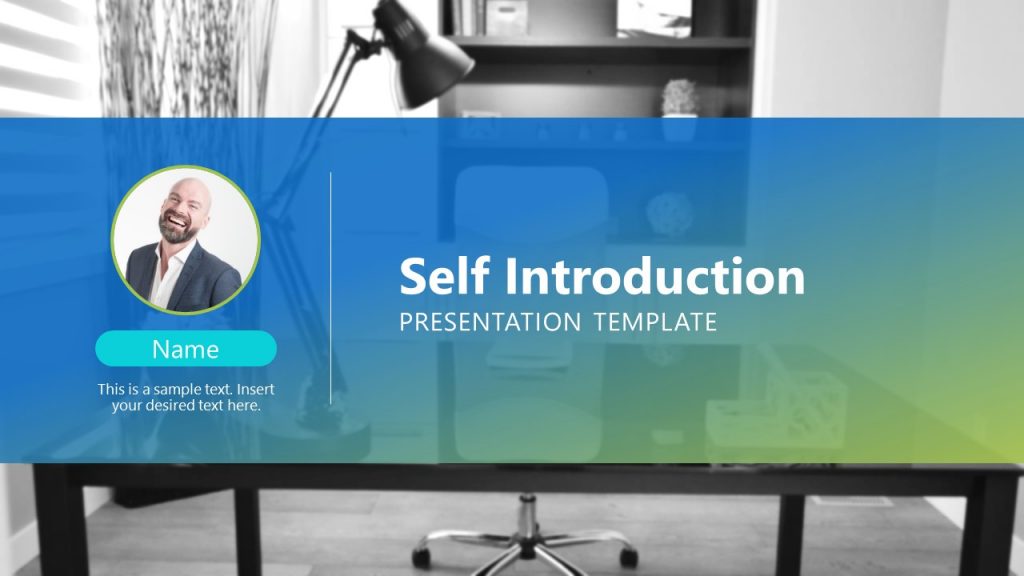
Use This Template
2. Professional Curriculum Vitae PowerPoint Template

This a sample of PowerPoint presentation template that you can use to present a curriculum and prepare for a job interview presentation. The PPT template is compatible with PowerPoint but also with Google Slides.
3. Modern 1-Page Resume Template for PowerPoint
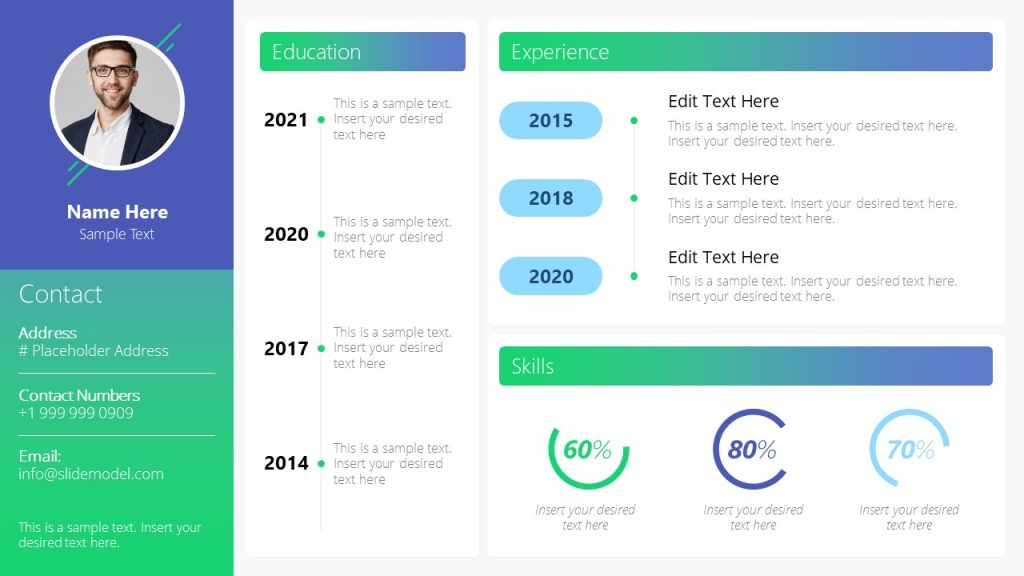
4. Multi-Slide Resume PowerPoint Template
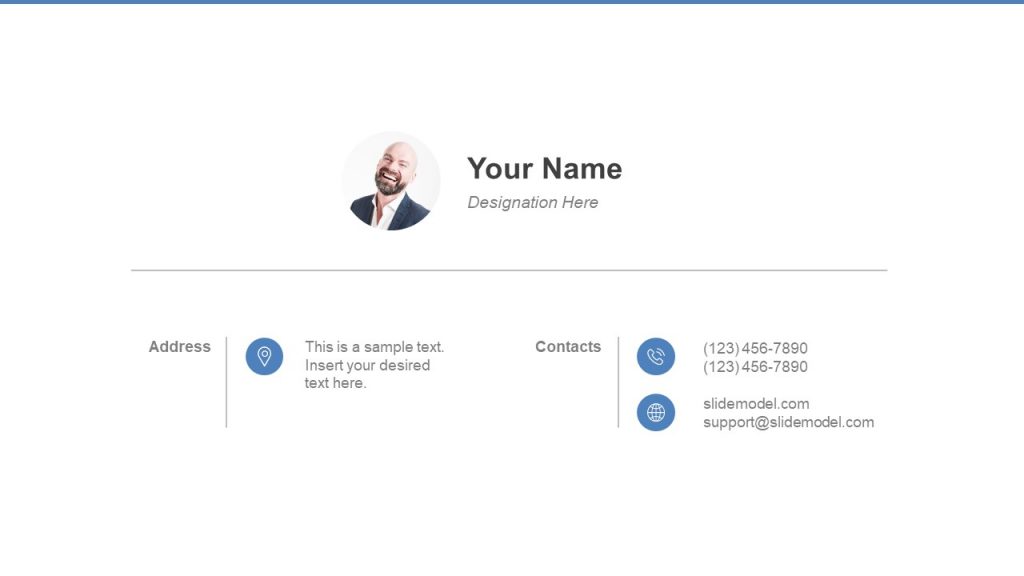
Like this article? Please share
HR, Human Resources, Interview, Job, Resume Filed under Presentation Ideas
Related Articles
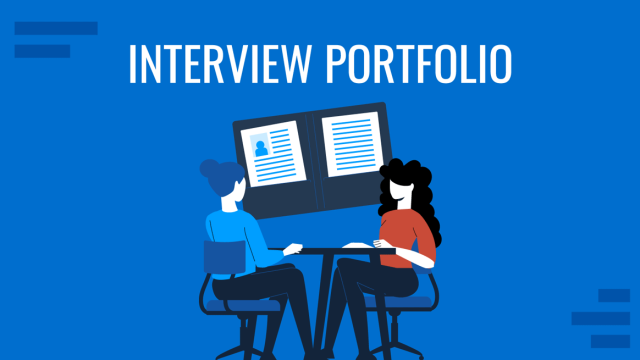
Filed under Business • April 17th, 2024
How To Make an Interview Portfolio (Examples + Templates)
Transform your job seeking experience into a smooth process by learning how to make an interview portfolio. Guide + Examples here.
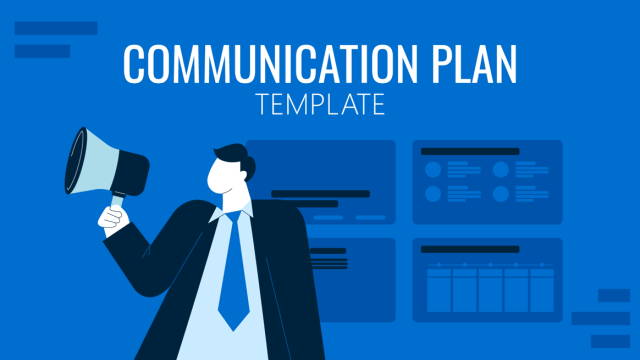
Filed under Business • December 7th, 2023
The Communication Plan Template
Discover why communication plan templates are a key asset for strategic structuring of information in organizations. Learn how to build one here.
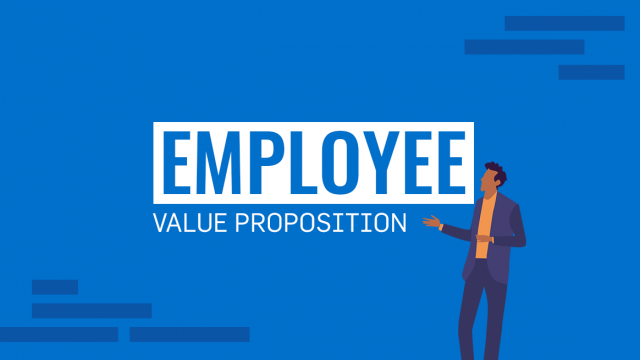
Filed under Business • September 8th, 2023
The Employee Value Proposition (EVP) | Key Components and Examples
Employee Value Proposition refers to how organizations are able to attract skilled employees in a competitive job market through the corporate culture, and benefits offered by them. In this article we explore what EVP is and how to formulate a strong EVP.
One Response to “How to Give A Compelling Interview Presentation: Tips, Examples and Topic Ideas”
Leave a reply.

< Go back to Login
Forgot Password
Please enter your registered email ID. You will receive an email message with instructions on how to reset your password.

Complete Guide For Preparing Job Interview Presentation With Examples
Making a presentation during an interview can be intimidating! Still, it’s a terrific method for you to highlight your abilities, personality, and suitability for the position and an excellent approach for employers to learn more about your expertise and knowledge.
Your ability to effectively communicate essential information and the quality of your design can frequently make the difference between a failed and successful presentation. No matter how solid your research or ideas are, excessive slides, packed content, and unreadable fonts might turn interviewers off. However, developing an eye-catching presentation can support your expertise and give you more confidence. It is a skill you should invest time in learning.
In today’s blog, we will go through all the components you should include in a presentation for interview and how to deliver them efficiently.
What Is A Job Interview Presentation?
Before seeing what you should include in a presentation for interview, let us discuss what is an interview PowerPoint presentation:
As your career advances, especially to an executive position, you might be required to give a presentation during an interview. These kinds of presentations help the hiring manager in doing employee performance reviews and let them decide whether you’re worthy of the position.

You may have to assemble a business plan and present your ideas, finish a task and demonstrate how you approached it, conduct research and submit your findings to a panel, or even give a presentation about why you would be an excellent fit for the position. All these presentations and tasks can be classified as interview presentations as they will convey your knowledge about the industry, organizational skills, communication skills, attention to detail, creativity, and more.
Giving presentations is something that many people find scary, especially when they’re concerned about an interview. However, you might have to do it at some point in your career, so the sooner you learn how to do it, the better. So, in the next section, we will see what an employer expects to see in your presentation for interview.
What Is the Employer Looking for in a presentation for interview?
The employer searches for a candidate who will stand out throughout the hiring process. They are looking for someone who will blend in with the business culture and who is knowledgeable about their profession. Another method to determine if candidates are qualified for the position is to ask them to give a presentation.
During the interview, your employer might notice the following crucial competencies:
- Your written and vocal communication style
- The way you interact with your audience
- Your profession and industry expertise
- Your capacity to adhere to a brief
- Your capacity for organization
- Your meticulousness
When an employer witnesses a blind presentation, they can additionally note:
- Your ability to function under pressure
- How imaginative you are
In the end, the employer is also determining whether you fulfill the requirements listed in the job description, so make sure to review it while you prepare.
What to include in a job interview presentation template
Here are a few components that you should consider while preparing a powerpoint presentation for interview:
Presentation type and topic
Choose a presentation style before you start getting ready for a presentation. It will impact the kind of template you make. For a virtual slideshow presentation, write a simple slide breakdown or a script for an oral presentation. The technologies used during your interview also influence your presentations. Consider contacting a recruiting manager with any queries before making any preparations if you need clarification on what they anticipate. When given a topic for your presentation, you can plan your study accordingly. Alternatively, suppose you have the freedom to select your topic. In that case, it’s advisable to focus on themes that ignite your passion and align with your expertise, ensuring you can effectively convey your message quickly.
Make a shorter presentation with tons of words, even if you want to impress your potential boss by showing how much effort you put in. Keep it simple with short slides that look good and convey your message. Aim for no more than ten slides, and make everything brief. It guarantees that the material you present will stick in the recruiter’s mind and make you stand out from the other applicants. Some recruiters might even allot a certain amount of time for your presentation; be sure to account for this and stay within it to avoid giving the impression that you lack time management abilities.
Include research findings and quotes from prominent figures in the industry in your presentation if you are performing research for it. It exhibits your business awareness and lends authority to your ideas.
Brand Style
Use the presentation and style of the company. It will demonstrate your diligence in research and draw attention to your brand awareness.
How To Prepare A Presentation For A Job Interview

To prepare a PowerPoint presentation for interview, follow these five steps:
1. Analyze the business
Be sure to research the company you are applying to before submitting your application. By exploring the business, you can incorporate crucial details into your presentation. To learn more about the company’s offerings, application procedure, market size, performance, leadership, and governance, visit their website. Examine news stories, features, and press releases recently covered by the media. If the business has a social media account, review the most recent updates to see the preferred tone and any new advancements.
2. Recognize your target audience
The audience for your interview will probably vary depending on the job you are applying for. It is essential to know who will be at your presentation, their departments, roles, and what they’re good at. For example, suppose you’re applying for human resources. In that case, your presentation will differ from someone applying for a sales or executive role. Hence, it will be more effective if you customize your presentation for the audience. Make a PowerPoint presentation that interests and is relevant to the audience’s technical and non-technical segments.
3. Get notes ready
Make notes on the company or sector you will present for. It’s crucial to be ready to discuss the topic you’ll be given during the interview. The interviewer can gauge your understanding of the more significant business the company works in, so include current industry news in your notes.
4. Adopt a rational framework
Make sure that the format of your presentation is well-organized. An organized presentation makes it easier for your audience to follow along and stay interested. A strong finish, exciting material, and an engaging introduction define a successful presentation. A strong opening grabs the audience’s attention, and your engaging facts persuade them that you are a standout contender.
5. Work on your delivery
Once your presentation is ready, practice delivering it. You can also catch presenting mistakes with proper practice. You can get prepared by using a camera to record yourself. You can also present in front of your friends and solicit their opinions on what went well and what still needs improvement.
How to Deliver Your Presentation For Interview
When delivering a PowerPoint presentation for interview, follow these tips:
- Seek advice
- Recognize your target
- Identify a central idea
- Tell an engaging tale
- Take a strategic stance
- Adopt a constructive mindset
- Get comfortable delivering
- Communicate nonverbally
- Conclude powerfully

1. Seek advice
Ask the recruiting manager for any clarification you might need before you start working on your presentation. Read and review all the directions regarding the presentation first. Ask the hiring team if they would prefer to hear about a particular topic or if you should develop your own if the instructions do not specify one. Next, determine how long you can expect to speak with the hiring team. You can show that you are detail-oriented, receptive to criticism, and have practical communication skills by asking for help.
2. Recognise your target
Find out how knowledgeable the audience is so that you can communicate at a level that is understandable and sophisticated. To better understand the audience and adjust your discussion to your audience’s knowledge, experience, and interests, think about asking for names and positions. Obtaining all your information will help you make your discussion more effective and relevant, raising your candidature rating.
3. Identify a central idea
Be careful to choose a focal point when deciding on a presentation topic. Ensure the audience understands your presentation’s main point by organizing it around a single idea. Reduce the points in your presentation to make it seem comprehensive, well-thought-out, and professionally prepared.
4. Tell an engaging tale
Some of the best ways to organize a presentation are through conventional storytelling techniques , whether you’re talking about a finished project or a highly technical subject. Using a proven method, you can make your message stick in people’s minds and grab their attention. To tell an engaging story, take the following actions:
- Describe the issue.
- Describe the significance of the issue.
- Talk about the difficulties you encountered while trying to find the solution.
- Finish with a powerful impact and resolution.
5. Take a strategic stance
Without being too commercial, use your presentation to establish yourself as the protagonist of your own tale. When feasible, use evidence to support your claims; otherwise, highlight your best traits and the most pertinent experience in your presentation. Seize the chance to show that you are a candidate who can quickly help the organization achieve essential goals.
6. Adopt a constructive mindset
Throughout your presentation, maintain an optimistic attitude while discussing your challenges. Consider emphasizing how you improved a problematic situation or discussing your efforts to overcome difficult circumstances. When appropriate, project an image of being proactive and emphasize your steps to resolve a problem. Let the information and data lead your presentation so the interviewers can grasp your thought processes.
7. Get comfortable delivering
To ensure you leave a positive first impression on the recruiting team:
- Practice your presentation multiple times in advance.
- Try presenting without consulting your notes or reading your script after a few practice sessions.
- Keep track of the time during each practice session to determine the perfect pace.
- Choose the main themes you want to discuss as you review each presentation segment to help it sound more natural and prevent it from coming across as too prepared.
8. Communicate non-verbally
Practice confidently expressing yourself while standing up and speaking. Face the audience directly, have a cheerful look, and smile naturally. To make points, keep your shoulders back and utilize small hand motions. Keep eye contact throughout your job interview PowerPoint presentation, particularly when making a crucial point.
9. Conclude powerfully
Create a memorable conclusion to ensure your presentation is as compelling as possible. A broad, open-ended question that came up throughout your study could be an excellent way to wrap up. A one- to three-word key takeaway that helps your audience recall the presentation’s primary point can also be used to wrap up. Integrating your message with an intriguing quotation next to the organization’s mission, vision, and goals is another effective wrap-up technique. In closing, raise any queries to show you are receptive to criticism and conversation.

Helpful tips For the Job interview Presentation
Here are some tips that you can use during the presentation for interview:
1. Create the outline
When requested to give a presentation at an interview, you should have enough time to organize it according to a predetermined outline. If the interviewer still needs to provide you with all the necessary information, ensure you know how the process will work out regarding the topic, time limits, available multimedia devices, and participants. Remember that adhering to the brief is a necessary component of the evaluation process, so if you’re requested to do the task in less than or equal to 10 minutes, stay within that amount of time. After you’ve confirmed the nature of the interview, you should begin preparing a presentation that will wow the audience and showcase your qualifications for the post.
2. Establish a framework
Developing a presentation with a coherent framework facilitates the communication of your ideas. A well-considered framework conveys your thoughts intelligibly and concisely rather than jumping from one notion to another. Naturally, an introduction is the ideal place to begin. Set the scene immediately and emphasize how your solution makes a real difference. Next, compose a story using informative statistics and first-hand accounts. It should demonstrate how your skills and expertise help the business achieve its objectives.
3. Improve the visual assistance
Your audience shouldn’t just be able to read the slides from your presentation. They must endorse what you’re saying to keep their attention on you. It entails using fewer wordy slides and increasing the number of images to illustrate your arguments better.
4. Practice For The Job Interview Presentation
Although it may seem obvious, people must practice their presentations long enough. Even if you have a better idea than the other interviewees, there’s a considerable possibility the hiring panel will only understand the relevance of your speech if you convey it well. To find the ideal balance, practice with friends or family and ask for feedback on your areas of weakness.
5. Get ready to adjust
It would be best if you rehearsed to project a powerful presence during your presentation. Still, the hiring panel may try to knock you off balance. Consider potential question topics when you draft your presentation. It might assist you in preparing answers that demonstrate that you have thought through the issue.
6. Pay attention to the little things
Once the creation of your presentation is complete, focus on fine-tuning the minor elements. We’ve already discussed the need to speak deliberately. Still, to project confidence, you should also remember to make eye contact and display open body language. Your presentation will go more smoothly if you are more prepared. Ensure you arrive early on the interview day so you can set up your presentation. Ensure your tech gadgets function properly, bring extra batteries for your remote controls, and allow enough time for a final evaluation.
Lastly, you can ensure you deliver a standout presentation showcasing your most substantial skill sets by giving your job interview presentation more thought and preparation.
Job Interview Presentation Examples:
Here are some job interview presentation examples of a presentation template to assess a candidate’s ability to teach by having them give thesis statements:
What Is A thesis statement?
Introduction.
Brad Cooper
As a seasoned academic writer, I plan to teach English in middle schools. A thesis statement is a crucial sentence that sums up your paper’s central topic. I will define a thesis statement today and give you an example to see what one may look like in an academic work.
Defining a thesis statement
A thesis statement is a sentence that exposes the reader to the primary idea of a paper or essay in the opening paragraph. Your thesis statement is one of the most crucial sentences in your work and one of the first things the reader will see, but it may also be one of the most difficult to compose!
An example of a thesis statement
It is an illustration of a thesis statement for a literary devices-related English paper: The central premise of this novel is that hardship can lead to triumph with hard effort and perseverance; the author presents this idea through metaphors and foreshadowing.
As I explained in my presentation today, a thesis statement is a paper’s central notion. Since it’s an essential component of the writing process, young children must know this subject as soon as possible. I appreciate your attention to my presentation. Do you have any questions concerning my credentials or the information I provided? I would be happy to help.
Job Interview Presentation Templates
SlideUpLift is well-known for its vast collection of expertly designed PowerPoint templates covering a wide range of subjects and businesses. One notable category within its repertoire is the Job Interview Presentations section. Here, you can find templates explicitly tailored for interview scenarios, enabling seamless presentations during job interviews such as job interview presentation examples. These templates come in various styles, such as making dynamic employee profiles and using the STAR system to highlight skills.
Interview Resume Presentation PowerPoint Template

The Interview Resume Presentation PowerPoint Template aims to help people with different professional backgrounds increase their chances of getting hired. This template consists of 11 slides, including all the relevant information that a job seeker should include in their resume to seek an excellent job. Job seekers, interns or students, professionals looking for a promotion, independent contractors, consultants, etc. can all use it.
Presentation Agenda PowerPoint Template

The Presentation Agenda PowerPoint template is valuable for incorporating a structured agenda into your job interview presentation. The Agenda Presentation template features four dedicated agendas, providing a clear, organized layout highlighting key topics. The slide can be included in your presentation, allowing you to communicate the issues to be covered effectively. Whether you are outlining the interview process, presenting key points, or discussing specific aspects, this template ensures a professional and visually appealing agenda for a presentation.
Star Job Interview Presentation Template
The Star Interview PowerPoint template adopts a structured format featuring four blocks: Situation, Task, Action, and Results.

This template is tailored for interviews or presentations using the STAR (Situation, Task, Action, Results) method to assess or communicate experiences. Each block provides dedicated space to articulate the specific Situation, Task at hand, Actions taken, and Results achieved.
30 60 90 Day Plan for Interview PowerPoint Template

A 30 60 90 Day Plan for an interview presentation is a structured outline that illustrates your intentions and proposed actions during the first three months of your employment in a new role. It’s a tool used to demonstrate your understanding of the position, your strategic thinking, and your ability to set goals and achieve them.
Animated Job Interview Presentation PowerPoint Template

This is another amazing resume PowerPoint template for you. The unique thing is that it comes with animations. These Animations make your presentation more exciting and attractive for the audience. Download it and customize it as per your requirements. Add your details, and you are good to go.
With all the information and tips in this detailed article, you can end your worries and prepare for your job interview presentation like a pro . You now possess all the specific presenting advice needed to ace the interview. If the design aspect overwhelms you, peruse our vast collection of PowerPoint Presentation templates and select particular components (such as data charts, shapes, and diagrams) to give your presentation the best visual appeal.
How long should my job interview presentation be?
Aim for a concise presentation, typically lasting 5-10 minutes, to maintain audience engagement.
What's the best way to conclude my job interview presentation?
The best way to conclude your job interview presentation is by summarizing key points, expressing enthusiasm for the role, and opening the floor for any questions from the interview panel.
What should be the key focus of my job interview presentation?
Prioritize showcasing your skills and experiences and how they align with the job requirements and company values.
How can I handle questions during or after the presentation for interview?
Be prepared for questions by anticipating potential inquiries related to your content, experiences, or the role.
How can SlideUpLift benefit me in preparing a job interview presentation?
SlideUpLift provides a wide array of professionally designed PowerPoint templates, including specific templates for job interview presentations. This resource can significantly help you create a standout and impactful interview pitch.
Table Of Content
Related presentations.

Resume Templates Collection

30 60 90 Day Plan For Interview Presentation Template

STAR Interview Presentation Template
Related posts from the same category.

5 Aug, 2021 | SlideUpLift
Nail That Interview Using The STAR Interview Technique
Interviews can be daunting. They are usually the first interaction you have with a potential employer, and your continued progress and ultimate success in the hiring process hinges on nailing

14 Apr, 2021 | SlideUpLift
How To Write A Vision Statement For Your Business That Actually Inspires
Running a business is not an easy job- there are numerous stakeholders, team members, clients - each having ideas on priorities, focus areas, where the business should go. They need
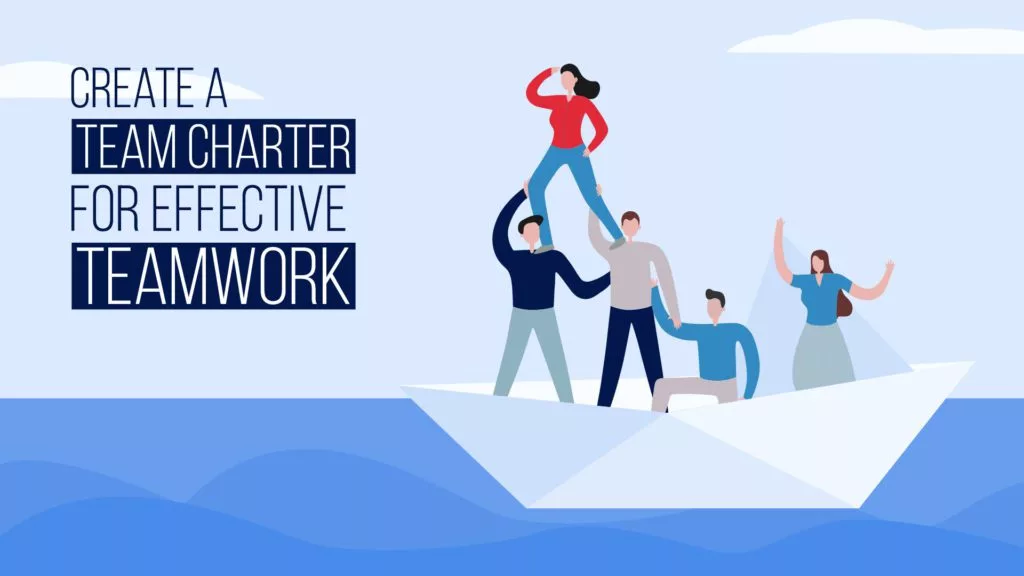
16 Sep, 2022 | SlideUpLift
Create A Team Charter For Effective Teamwork
Working in a team can be both rewarding and tricky. Ensuring that everyone in the team is working towards a common goal, collaborating and communicating progress, and delivering results is

11 Mar, 2021 | SlideUpLift
Wheel Of Change – The Perfect Model for Change Management Strategy
The world of business is constantly evolving. Traditional processes are being abandoned, as newer business models are created and adopted. With COVID-19 the pace of these changes has accelerated at

20 Feb, 2024 | SlideUpLift
Detailed Guide For Start Stop Continue Retrospective [With Examples & Exercises]
A lot of people find it challenging to provide and accept constructive criticism. Why? Because receiving criticism can be awkward. It might be uncomfortable to criticize your team's performance, and
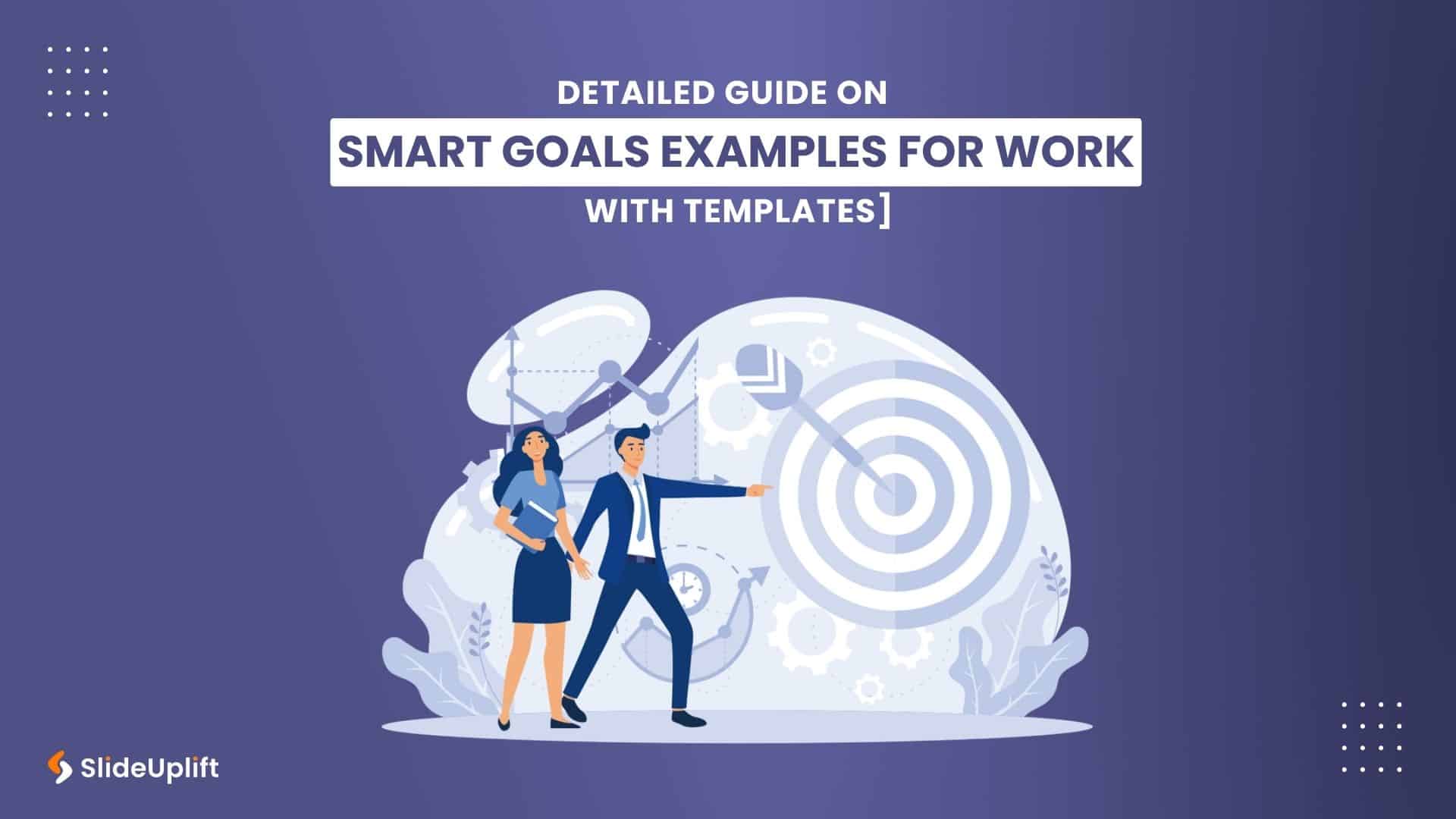
2 Feb, 2024 | SlideUpLift
SMART Goals Examples For Work [Guide For Professionals With Templates]
As we step into the fresh year of 2024, it's time to set resolutions for both our personal and professional lives. This includes taking a close look at our business
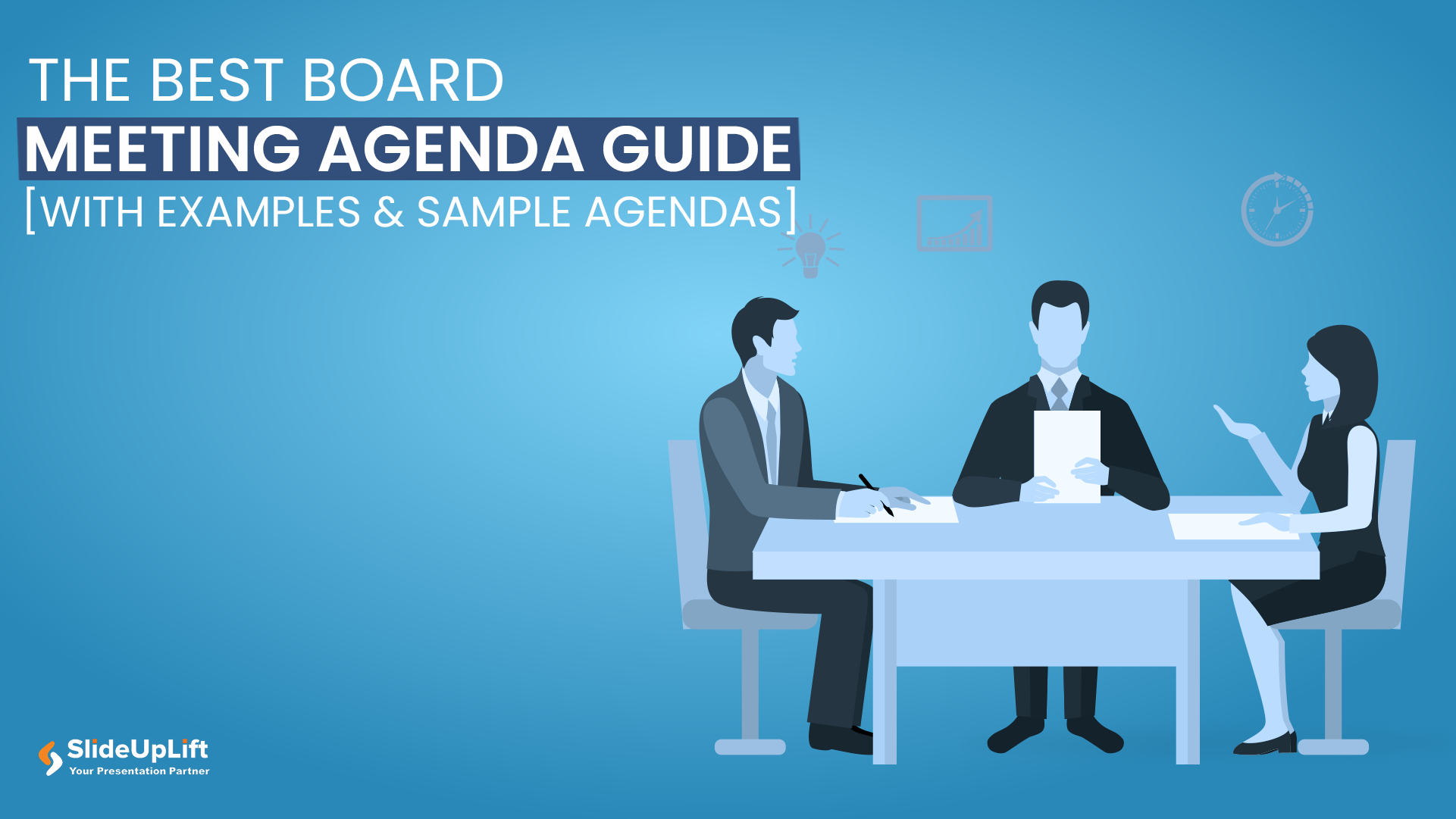
1 Feb, 2024 | SlideUpLift
The Best Board Meeting Agenda Guide [With Examples & Sample Agendas]
You might have had a meeting that went completely off. It might be overly prolonged and had numerous off-topic discussions. It has happened with most professionals at some point in

11 Sep, 2023 | SlideUpLift
Complete Guide to Outsourcing PowerPoint Presentations
The importance of compelling presentations cannot be emphasized. They serve as channels for exchanging knowledge, influencing choices, and communicating ideas. A well-designed presentation can influence perceptions, motivate action, and boost
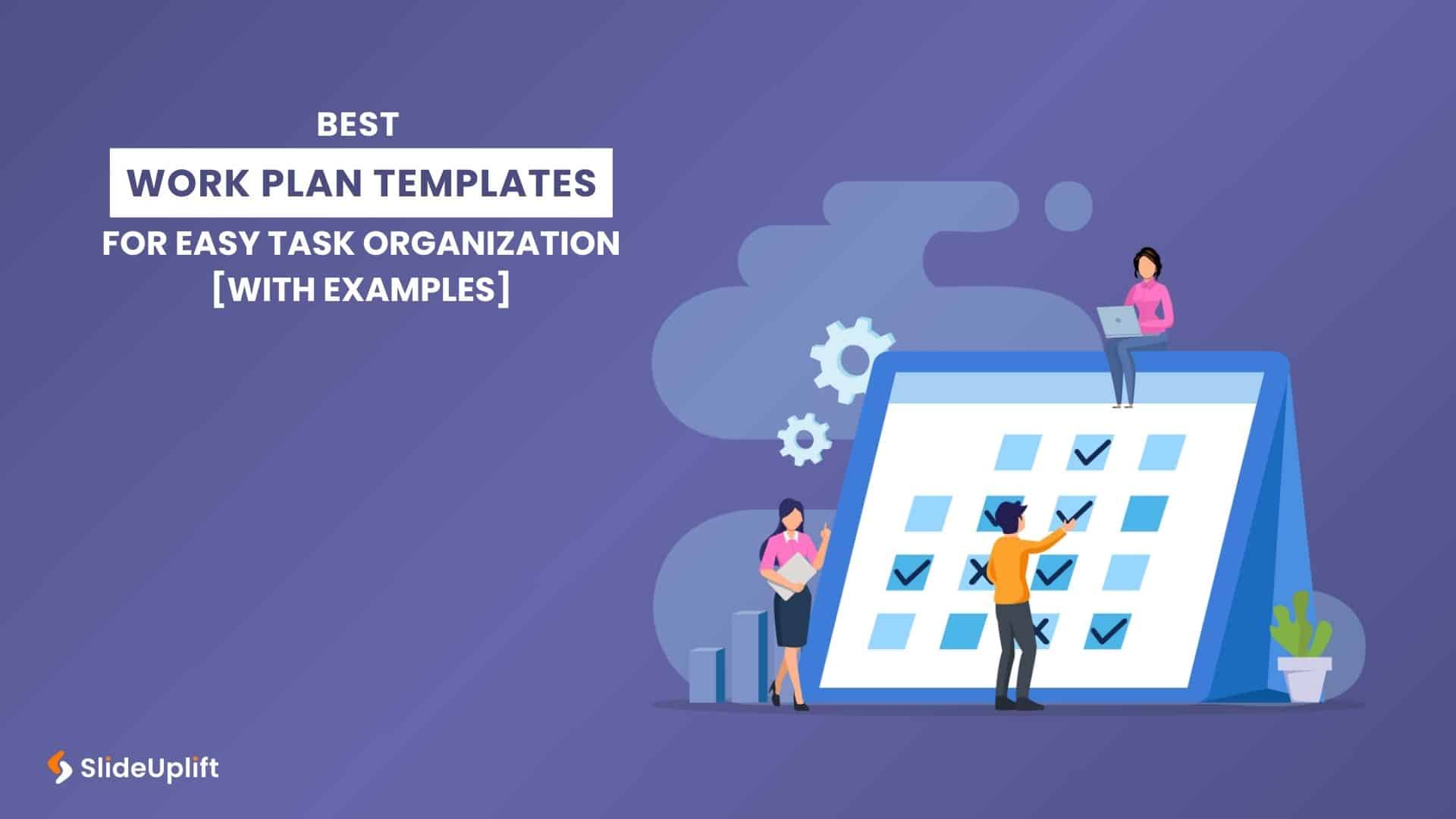
6 Mar, 2024 | SlideUpLift
Best Work Plan Templates For Easy Task Organization [With Examples]
A project's success depends on having a detailed task plan. How can you perform tasks without having a plan for them? You and your team can produce the ideal work
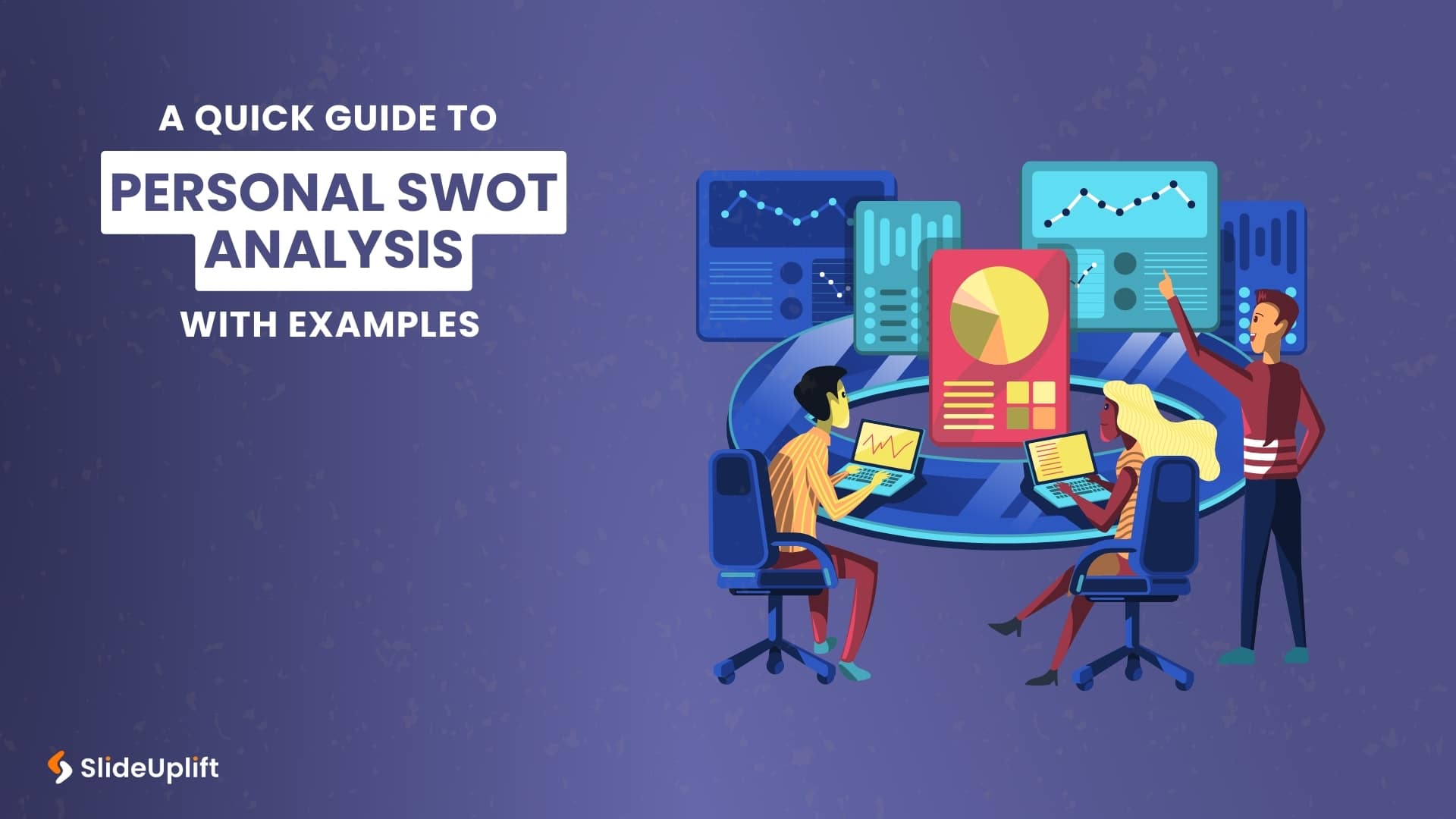
14 Feb, 2024 | SlideUpLift
A Quick Guide To Personal SWOT Analysis With Examples
How often have you faced the dreaded question in an interview: What are your weaknesses? Or what are your strengths? Many individuals find these questions intimidating because they fear it
Related Tags And Categories
Forgot Password?
Privacy Overview
Necessary cookies are absolutely essential for the website to function properly. This category only includes cookies that ensures basic functionalities and security features of the website. These cookies do not store any personal information
Any cookies that may not be particularly necessary for the website to function and is used specifically to collect user personal data via ads, other embedded contents are termed as non-necessary cookies. It is mandatory to procure user consent prior to running these cookies on your website.
Interview presentation preparation tips
The interview presentation is becoming more common in the hiring process. It gives employers a better overview of your general aptitude and provides you with an opportunity to showcase your skills, knowledge, and experience. But how should you prepare for an interview presentation? What should you include? What if it goes wrong?

4th Jun, 2021

On this page:
Stay up to date with the latest employer insights & events.
By submitting this completed form to us, you agree to Reed contacting you about our products and services, and content that may be of interest to you. You can unsubscribe from these communications at any time. For more information, please see our privacy policy .
By clicking submit below, you consent to allow Reed to store and process the personal information submitted above.
What is an interview presentation?
As you progress further in your career, particularly to executive level, you may be asked to give a presentation for interview. Perhaps you’ve been asked to conduct research and present your findings to a panel, complete a task and show how you approached it, put together a business plan and present your ideas, or even give a presentation about yourself and how you would excel in the role. Whatever you are presenting about, how you approach it should remain the same.
Many people find giving presentations intimidating, especially during an interview when you’re already nervous, but it’s something that you may have to do throughout your career – the sooner you tackle this skill, the better.

Why are you being asked to do a presentation for a job interview?
Many employers opt for a presentation-style interview as it gives a better overview of your general aptitude when compared to, or combined with, a traditional question and answer interview, like a competency-based interview . The interviewer is looking for proof that you can do the job and that you possess the required skills and traits.
Additionally, if you put time and effort into your presentation, this will highlight to the hiring manager that you are committed to the role and enthusiastic about joining the company. How many times have you been asked in an interview ‘Why do you want this position?’ or ‘What is it about this role that attracted you to it?’. They want to know how much you want this position, rather than just any position.
How to prepare a presentation for an interview
Where do you start? What should you include? The presentation is your opportunity to showcase your knowledge, experience, and communication skills as well as your organisational skills and diligence – so start with the job description and person specification and pick out key skills and traits that the company is looking for. Then you can prepare your presentation around what they want to see.
For example, if the business is looking for someone creative, pay great attention to the style of your presentation. If it is looking for someone who is a confident public speaker, spend more time perfecting your speech. If attention to detail is paramount in the role, double and triple check your spelling and grammar. This is a great starting point and gives you something to build your presentation around.
What to include in an interview presentation
Although you may be tempted to go all out and show your potential employer that you are committed to the job, don’t fall into the trap of creating a 30-slide presentation with reams of text. Try to keep each slide short and significant and aim for no more than 10 slides. This ensures the information you deliver is memorable and will help you to stand out from other interviewees. Some interviewers may even give you a specific amount of time for your presentation, make sure you factor this in and don’t go over the time limit – otherwise you may appear to have poor time management skills.
Another way to make sure your presentation engages hiring managers is to include a range of formats to help you illustrate your points. Include graphs, statistics, diagrams, video clips, and images to help break up large volumes of text and maintain the attention of the interviewers.
If you are conducting research as part of your presentation, include quotes from industry leaders and/or research pieces. This gives your points authority and demonstrates your commercial awareness.
You should also try to incorporate the company’s colours, fonts, or style in your presentation. This will show that you have done your research and highlights your brand awareness.
Finally, check your spelling and grammar thoroughly! Small mistakes can really undermine the content of your presentation.
Tips for presenting at the interview
Presenting is a skill which can be learnt. Even if you are not a confident public speaker, the more you practice, the better you will become.
Present confidently and enthusiastically - Remember to speak clearly, make eye contact, and use open body language.
Don’t just read the slides - There is nothing worse than watching a presentation where the presenter has their back to you the whole time just reading reams of text from their PowerPoint notes.
Try not to talk too fast - Make sure you breathe, and take your time.
Practice, practice, practice - Ensure you are well rehearsed so that you are familiar with the structure of your presentation and are able to deliver it smoothly. If possible, practice your presentation with family members or friends to get used to speaking in front of other people.
Arrive early to give yourself time to set up the presentation and settle any nerves - Get comfortable with PowerPoint and presentation equipment. Make sure you know how to work any projectors, screens, or remote controls before you begin to avoid any awkward stumbles or pauses.
Stay within the allocated time - If you have not been given guidance on length, aim for the 10-minute mark. Time your presentation when you are practising to make sure it will fit within the time limit. If you need to reduce the content of your presentation, cut out the least relevant or weakest points.
Be prepared to adapt - You may have practised your presentation in a certain way, but the interviewer might not respond accordingly. Be prepared to be interrupted by questions or further discussion unexpectedly.
Breathe and try to enjoy it - By relaxing, you will find yourself presenting better and, if you enjoy it, your interviewers will respond to that and be better engaged with what you are saying.
Tips for keeping the interview presentation simple
It can take a lot of work to make something simple, yet effective, and when it comes to interview presentations less is often more. Keep it short - As previously mentioned, try to keep each slide short and aim for no more than 10 slides in total.
One idea per slide - To make sure your presentation is clear and concise, each slide should represent a different point/idea you want to make.
Stick to the important bits only - If you don’t think it’s important enough to spend time on, don’t have it on your slide.
Use the 4x6 rule - Aim for either four bullet points with six words per bullet point, or six bullet points with four words per bullet point. This way, your slides won’t look too busy.
Minimal text - Instead of writing paragraphs of text, use bullet points and a minimum font size of 24.
What's better for your interview presentation? Cue cards or presenting from memory?
Should you use cue cards in your presentation for interview or try to present from memory?
The answer to this question depends on what you feel most comfortable doing. If you find that having cue cards will help ease your nerves and ensure that you don’t forget your speech, then there is nothing wrong with that.
However, if you choose to use cue cards, you should not rely too heavily on them. You shouldn’t stand in front of the interviewers and look down at the cards continuously, neither should you write your whole speech out on the cards and read directly from them. They are cue cards for a reason and should only give you prompts on what to talk about. If your interview presentation has a lot of statistics on, using cue cards to remember the figures if you are unable to memorise them all is an excellent strategy.
What to do when things go wrong
You can practice your interview presentation as much as possible, but something may still go wrong and it’s important to be prepared for this eventuality. Here are some things that could go wrong and how to deal with them: Technical issues
There is not a lot you can do to prevent technical issues, especially if you are using someone else’s computer. But there are ways you can prepare just in case. Ensuring you have access to multiple sources of your presentation is key. Email the file to yourself and the recruiter, bring a copy on a USB stick and printed handouts. This way you are covered if anything goes wrong with the file you’re intending to use.
Your mind goes blank
Even those who are pros at presenting can sometimes lose their train of thought and find that their mind goes blank. The key here is not to panic. If possible, take a bottle or glass of water in with you and use this chance to take a sip, breathe and try to relax. Then look at your presentation slide or your cue cards and pick up where you left off. It may be helpful to repeat the last point you made as saying it out loud could spark your memory for your next point.
You are asked a question that you don’t know how to respond to
If you have allotted time at the end of your presentation to allow the interviewer to ask any questions (which is recommended), don’t worry if someone asks a question that you are not sure on. It may be that the interviewer is looking to see how you respond to a challenging question, so how you react is often more important than the answer itself.
If you do not understand the question, ask the person to explain. There is nothing wrong with doing this and shows more confidence than just saying that you don’t know. If you understand the question but are not sure of the answer, then admit that you don’t have the full answer, provide what information you do have, and offer to come back to them at a later date with a complete answer.
10-minute interview presentation template
Below is a presentation for interview example. Use this as a baseline and adapt or reorder where appropriate based on the task you have been set by the interviewer. Slide 1 - Introduction – Reiterate the objectives you have been set and lay out the structure of your presentation so that the interviewers know what to expect. Slide 2 - About you – Detail your professional experience, skills and working style. Slide 3 - Company history – Give a brief summary of the company history, any milestones or awards. Slides 4-7 - Answering the brief – Give your responses to questions you’ve been asked to answer, the benefits and limitations of your suggestions. Slide 8 - Question and answers – Include a slide titled ‘questions and answers’ as a cue to pause for interaction. Slide 9 - Conclusion – Sum up the key points you have made, reach a decision, and explain your reasoning. Slide 10 - Personal achievements – End the interview on a high with a brief slide highlighting achievements that show how you will succeed in the role.
For more information on how to ace your interview, download our free guide, ‘ Getting the best from your interview: Candidate interview tips and tricks ’, or contact your local recruitment specialist today.
You may also be interested in...

Getting the best from your interview
The interview is about presenting yourself as the best candidate for not only the position, but the company. Our handy guide will take you through some simple steps to make sure you do just that.

The eternal optimist - winning with an attitude of gratitude
Former England sevens Captain and current PwC Director, Motivational Speaker, Coach & Founder of Optimist Performance, Ollie Phillips, gives you an insight into becoming an ‘eternal optimist’.

How to prepare for a second interview
How to write a covering letter. The bane of many people’s lives. But it really doesn’t need to be. Follow our simple tips and yours will stand out from the crowd.
Frequently Asked Questions
A job interview presentation is all about selling yourself. Be confident, speak clearly, and make eye contact with the interviewer. Don’t be afraid to promote yourself and highlight your achievements. This is your chance to really show the interviewer that you are capable and have the necessary skills to do the job. By putting time and effort into your presentation, you can show them how dedicated you are to the role and the company. For more information on how to ace your interview, download our free guide, ‘ Getting the best from your interview: Candidate interview tips and tricks ’.
Using cue cards can support you with your interview presentation, as long as you use them for their intended purpose. Do not write your entire presentation for interview out on cards and read from them word for word or constantly hold them in your hand and fail to make eye contact with the interviewer. Use them only to prompt you or for remembering key facts and figures. For more tips, read our article on ‘interview tips & questions’ .
If you have been sent a presentation brief that you do not understand – don’t panic. If there are words that you are not sure about, do some research and try your best to figure out what the organisation is asking of you. If you are still unsure, you could ask your recruiter as they may have seen this brief before and can give you an idea. If you are dealing directly with the hiring manager, then it may be worth checking that your interpretation of the brief is correct.
It is better to ask the question than present on something completely different to what the interviewer has asked. However, instead of saying to them that you don’t understand the brief and leaving it at that, tell them your understanding of it and ask if this is correct. This will show that even though you are unsure, you have taken the time to try to come to a conclusion yourself before asking for help. Download our free interviewing guide for more tips and advice.
How long your job interview presentation should last depends on what guidance you have been given. Thoroughly read the brief, as the recruiter or hiring manager may have specified the length of time you have for your presentation. If they haven’t given any indication, you should aim for 10 minutes, including time for questions and answers. For more tips on interviewing, read our article on ‘interview tips & questions’ .
Find a Reed office
Our national coverage allows us to offer a recruitment service tailored to your needs, with accurate local market intelligence on salaries, competitors and the best professionals who can help your business thrive.
Digital Marketing News
Job interview presentations: how to crush your next job interview presentation.
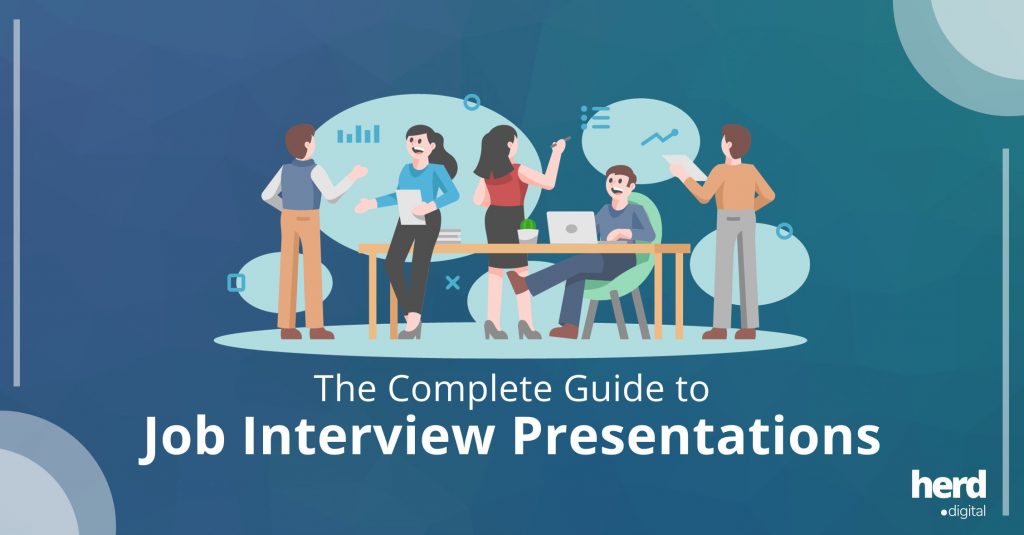
The Job interview presentation is a typical, but difficult part of the interview process. The presentation you have to give can differ massively to someone who is applying to a different role. For example, for a junior SEO or content writing position, you may have to do a written task beforehand, and then present on it.
But in a PPC or Paid ads position, you may be asked to conduct some data analysis and report on your findings and what your actionable outputs would be.
But despite this variety, there are a few universal rules for your job interview presentation that you should be aware of: From the key things to remember during a presentation, to common mistakes to avoid.
What is a Job interview Presentation?
A job interview presentation is a task, set by the interviewer, to assess your knowledge of a certain skill or skills, usually one that is incredibly important to the position you’re applying for.
While job interviews primarily consist of interview questions (and you definitely should prepare for the typical digital marketing interview questions you’re likely to face), you are likely to have to complete a job interview presentation as well.
These interview presentations can range from technical tasks and presenting your results and how you found the task, to giving a mock pitch or presentation for a client, or even presenting about yourself and why you are a great fit for the job.
And while there are a wide variety of job interview presentations you can be asked to give, your approach should stay the same.
Why Are They Asking You to Do a Presentation in Your Job Interview?
Employers primarily use a job interview presentation to gain a deeper understanding of your skills or experience: An area that will be crucial in your new role.
An interview presentation or task gives an interviewer a stronger sense of your ability than traditional interview questions. Which is why it’s essential to get it right.
But getting it right, depends on the role you’re applying for. So it’s important to identify which skills the task is asking you to show.
For example, if you’re going into a data heavy role, then a business will be eager to see how well you can work with large datasets and Microsoft Excel. Or in a client-facing, account management role, you’ll need to show you’re confident presenting and in high-pressure situations.
Recognising what the interviewer is looking for lets you know where to focus your efforts for your presentation.
Key Things to Remember for a Job Interview Presentation
When completing your job interview presentation, there are a few key things that the interviewers will be looking for from your presentation that you need to remember:
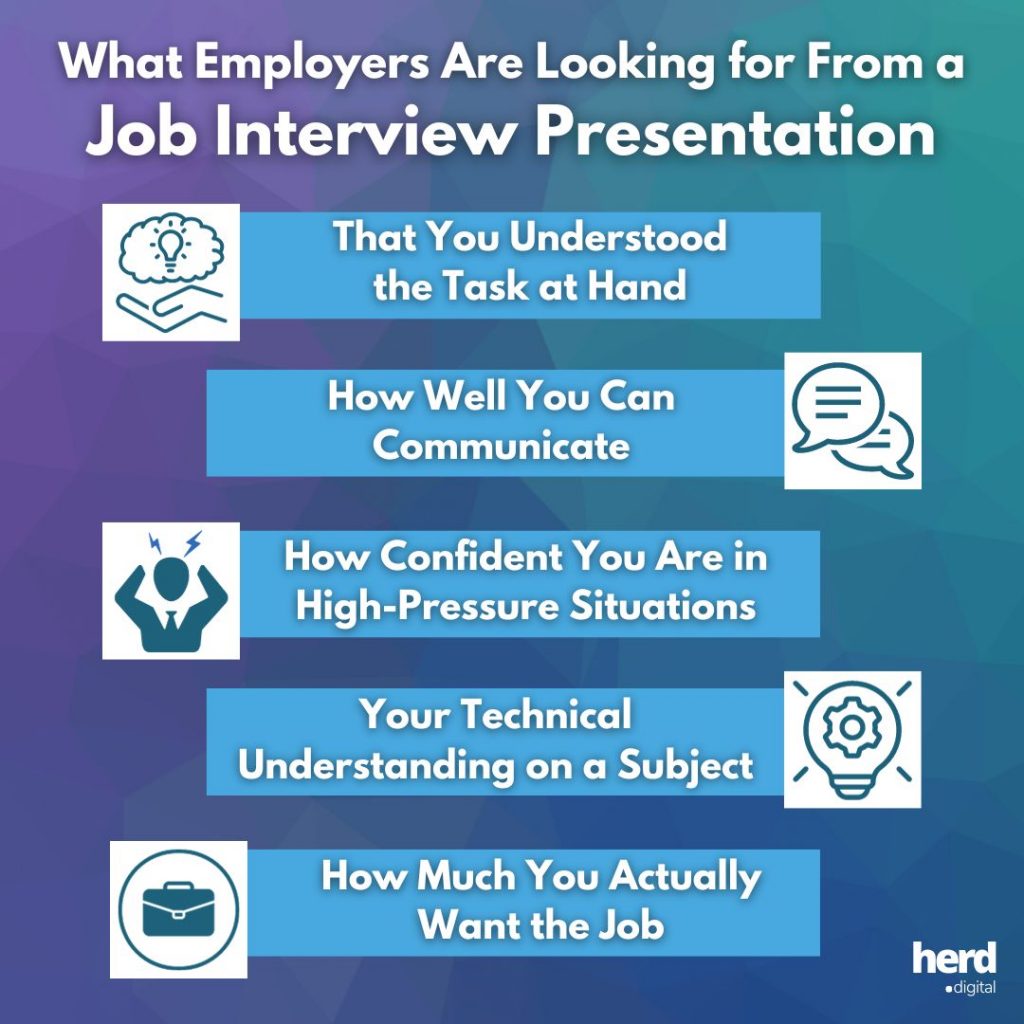
These are the biggest points to remember during your interview presentation, but they’re not the only ones. You can always be up front with the interviewer or hiring manager you have been working with and ask them what they want to see from the interview.
11 Job Interview Presentation Tips
1. keep it to a good length.
Something to ask yourself is, how long should your interview presentation be? Unfortunately, the answer is “it depends”. A presentation should be as long as it needs to be, to concisely and clearly convey the subject matter.
Many interviewers often give an outline of how long your interview presentation should take. And you can always ask the interviewer how long they would like the presentation to be: After all, they will have had multiple people complete this presentation for them before, and should know roughly how long it should take.
2. Make it visual
Your interview presentation should engage the interviewer, but without boring them.So you should aim to make it visually appealing: Which means more than just slides filled with text after text.
Instead of having fields of data, use graphs, diagrams and charts to make these more digestible and visually interactive.
3. Don’t overcrowd the slides with information
We generally advise only having one idea or point per slide. You want your presentation to be easily digestible, without bombarding your interviewer with too much information at once.
After all, you should use the slides to highlight the most important parts of your presentation, and then go into more detail and expand on them yourself.
4. Use the company’s branding
A small touch for your job interview presentation to impress the interviewer, is to match the branding of the company you’re looking to join.
This simply entails looking at the company website, perhaps even downloading some of their downloadable assets, and copying their brand feel and style.
While not a make or break for your presentation, it does show that you’re putting in the extra effort, and recognise how important the company brand is.
5. Proofread
When you’re finished with putting together your presentation, it’s time to double and triple-check it. Because there’s nothing more embarrassing than going to present and noticing a spelling mistake that throws you off your game. Or even worse, having it pointed out by the interviewer.
6. Make sure to practise beforehand
Whether you practise on your own or with others, it’s crucial that you practise your presentation beforehand. This allows you to:
- Make sure your presentation flows smoothly from slide to slide and point to point.
- Ensure you have fully memorised the content of the presentation.
- And that your presentation is an appropriate length, not too short or going on for too long.
And if you’re not a natural presenter, rehearsing and ensuring that you’re as practised as you can be is a great way to increase your confidence.
7. Present confidently and clearly
Just as important as the content of your presentation, is how you present it. Your job interview presentation could be full of information and be beautifully written and presented. But if you can’t present with confidence and clarity, the interviewer isn’t going to have much faith in your ability to work cohesively with others.
This is especially important in roles where you’ll be working with customers/ clients, or have to regularly collaborate within other teams within the business.
8. Don’t rush it
When in a high-pressure situation, it’s understandable that you want to get through the presentation as quickly as possible. But your interviewer will absolutely pick up on if you’re rushing through the presentation and your nerves.
But it’s important to slow down and not rush through it. This allows you to take control of the presentation, and deliver it confidently and clearly.
9. Have relaxed and confident body language
Your body language tells your interviewer a lot more about how you’re feeling than you realise. So aim to have open body language, animated but not erratic.
Meanwhile try to avoid having arms crossed, with conveys being uncomfortable in the situation. Or having a lack of eye contact, that can convey that you’re not confident with what you’re saying. And if your body language is saying that you aren’t confident with what you’re saying, why should the interviewer believe you!
For more information on what your body language says about you, and tips to improve your body language in interviews, have a look at our full guide here .
10. Leave some time at the end of your interview for questions
For example, if you’re given 30 minutes for your presentation, we would advise aiming for around the 25 minute mark, allowing 5 minutes for any questions.
This gives you ample time to answer any interviewer questions, and gives you the time to respond to challenging questions without feeling rushed, knowing you have the time to think of an answer.
11. Understand what the interviewer is looking to see, and prepare for any questions you might face
While it can be tricky, it’s important to put yourself in the shoes of the hiring manager and interviewer. Try to understand what exact skills they’re looking for from your presentation.
Understanding this will have a huge impact on your presentation and its contents.
Additionally, understanding the areas of importance to your interviewer helps you to predict and prepare for potential questions you’re likely to face.
While you won’t be able to predict every question, you can prepare answers that can be adapted and used to answer a variety of questions.
For example, say you’re interviewing for a client facing role where your presentation is creating a pitch for new customers. A good idea would be to prepare answers for any potential objections the imaginary client may have to your pitch.
5 Mistakes to Avoid in a Job Interview Presentation
Just as important as it is to know what to do in your presentation, it’s important to know what not to do. Because these common interview presentation mistakes can cost you if you don’t prepare!
1. Being Nervous With Presenting
This one is certainly easier said than done. But it is possibly the most important thing to avoid in your job interview presentation. A little nervousness is absolutely normal. But being overly anxious can stop you putting your best foot forward.
A presentation is all about projecting confidence, in both yourself and the subject you’re speaking about.
And if you’re not a natural public speaker, (and even if you are) the best bit of advice we can give you is to practise your presentation until it feels natural. The more you practise, the better you’ll know what you’re presenting, and the more confident you will feel.
It can sometimes even be helpful to go over your presentation with a colleague or someone who can give some friendly advice.
Of course, this is one of the perks of working with a recruitment agency, as we have seen hundreds of job interview presentations and tasks, and give you tailored advice on what the client is looking for…
2. Not Understanding the Task
When the interviewer gives you your task, it’s obviously important to understand what the presentation is asking you to do. But as we discussed earlier, you are asked to complete a job interview presentation for a specific reason.
Understanding the reason behind this allows you to focus your time and efforts into what really matters, and put your best foot forward in the interview.
3. Having Too Much Information on the Slides
A common mistake we see from the candidates we work with is having too much information on your slides. Which sounds contradictory, after all, you want as much information in your presentation as possible, right?
Well yes and no. After all, you want your presentation to be chock-full of relevant information.
But you should aim to use the slides of your presentation as talking points that allow you to present information. The slides should have examples, key figures, or data on, that allows you to expand on them in your own words. Because you want the attention to be on you, not just on the slides.
After all, nobody wants to sit through a half hour presentation of you reading out all the information that’s already on the slides in front of them.
4. Not Being Prepared For Potential Questions
Part of preparing your interview presentation, is predicting the potential questions you may face.
This may require some introspection: Thinking which areas of the presentation are most important, and which areas the interviewer is likely to focus on.
Realistically, you can’t think of every possible question that you can be asked. But, even the act of preparing answers to potential questions will make you more confident going into the interview, and help you to rehearse everything you need to present.
5. Going Overboard on Time and Content
One of the key things to remember for your job interview presentation is the need to follow the established time limit.
While you may have a lot to say on the subject, your interviewers will be keenly paying attention to how well you manage your time in a presentation.
If you’re in a client-facing role for example, the business won’t want to put you in front of clients when you go over the 30 minute allotted time by 10 minutes…
Or Work With a Recruiter Who Will Help With Your Job Interview Presentation !
Of course, it’s always helpful to have someone who can help you with the presentation in your job interview.
One of the perks of working with a recruitment agency like us here at Herd, is that we support the digital marketers and candidates we work with on their interview presentations. While we’re not SEO or PPC experts, we have seen hundreds of interview presentations, and can offer insight into what interviewers are hoping to see.
If you want some support with your job search, (just like with preparing for your job interview presentation), you can reach out to us here to see what we can do to support you in your job search.

Got a question?
We're here to help. Check out our FAQs, send us an email or call us on 0208 629 6006.
Register for new job alert
- Google Slides Presentation Design
- Pitch Deck Design
- Powerpoint Redesign
- Other Design Services

- Guide & How to's
How to create and give a great presentation at a job interview?
A job interview presentation can be your own initiative or the company’s requirement for meeting with HR or a recruiter. In both cases, it is your chance to demonstrate your mind, approach, and skills from your vacancy perspective. Additionally, a quality and attractive interview PowerPoint presentation shows your ability to analyze, talk, explain, and persuade. If you’re a designer, you should make a pitch on colors, fonts, and other visual components. If you are a sales manager, you should concentrate on numbers and better send a presentation design to the agency.
If you feel you can rely on yourself, we’d like to share some tips on how to make a presentation for an interview and present it confidently.

Slides to Include in an Interview Presentation PPT
The zero advice here is to include only the most relevant details and facts of your biography. If you apply for a manager position, mentioning psychology as a hobby will add points. However, if you apply for a programmer, there is no need to show your rewards in ballet or box.
To begin with, aim for one slide per minute. If given 10 minutes, try to contain 10 to 12 slides. Let’s outline some basic slides in your presentation for the interview ppt.
All these slides cover a simple 3-stage presentation structure:
- Introduction: tell them what you’re going to tell them.
- Middle: tell them.
- End: tell them what you told them.
Slide 1: Welcome the audience.
Welcome people to your presentation by introducing them, saying what you will cover, assuring their comfort as observers, and asking them to leave all questions until the end.
Slides 2-3: About me (education, past jobs, courses, skills).
Slides 4-5: What I can do for you (the reason to apply, strengths, previous achievements).
Slides 6-7: Why I can do it (skills, solutions).
Slide 8: Summary.
Some positions allow including slides about hobbies or some interest outside the work, but we suppose that depends on the seniority of your position and its type. If those interests strengthen your skills required, add them but briefly.
Tips to Improve Your Presentation for Interview
Research the company.
The first interview presentation tip is to personalize slides for the company’s industry and their latest challenges/news/issues. What kind of products and services do they sell? You adjust your expertise to the company’s current problems showing how your skills impact and contribute as soon as they hire you. However, we advise not adding these references to every slide because it may look obsessive.
Know yourself
The second tip to ace your interview presentation slides is to know your strengths. You can list dozens of certifications, but how do they really work and help in practice? Name advantages related to the company. Tell the audience what you have done and can do to assist the company in current challenges. For example, you’ve researched the company’s goals to achieve, and you should focus on those strengths that complement these aims.
Present with PCS format
PSC is an abbreviation meaning Problem, Consequences, and Solution. For example, you start the presentation by identifying a company’s problem, continue with the consequences they face without your expertise, and end with the clear solution you propose to overcome the problem. The solution shouldn’t be perfect, but this approach shows you’re a creative problem-solver.

6 C’s to Consider to Give Top-Notch PowerPoint Presentation for Job Interview
Psychologically, you need to do a couple of preliminary things to recognize what interviewers are looking for in the first place. Let’s review what they specifically search:
1. Communication
They will look at how you communicate, articulate, or are cohesive and smooth. Not only slides but words coming out of your mouth must make sense.
2. Carry yourself
They will notice whether you’re enthusiastic, energetic, polished, professional, persuasive, etc. For example, if you apply for a senior position, the interviewer will definitely consider if you can give confident pitches or arguments.
Are you comfortable with this entire environment? Is it easy for you to be present? People who interview dozens of candidates easily read your comfort or discomfort level by analyzing body gestures: how you click the clicker, look at the slides, bite lips, change voice tone, react at the interruption, etc.
4. Construction of presentation
It is more than just an outline structure, and it is about whether the person is going through a cohesive story with all the necessary information and prepared slides. It is about the packaging you must put together from PowerPoint or Google slides , a deck, handouts, etc.
It is the biggest key of the whole meeting. Sure, presentations are about introducing yourself, but the insight, information, and sequencing will cover the most time.
6. Compelling
You’ll often need to make a persuasive argument for the audience to see it as a good “deal” and you as a profitable “offer” they want to buy. Don’t consider it offensive but aren’t you selling your expertise and time, right?
To get the offer, you need to know what they want to give something valuable. People make mistakes when they think about their personalities while creating slides. The right approach is to consider the company’s needs when compiling skills, adding certifications, and listing advantages. Don’t waste anyone’s time 🙂
If you consider our tips, you know now how to give a good interview presentation. It is all about focusing on the company’s current needs or challenges. If you use this perspective, you’ll look like a more valuable candidate interested in the vacancy and able to propose solutions to real problems and ways to achieve current goals. Companies will never kick off individuals who know their strengths, communicate confidently, and show sincere interest in the company.
#ezw_tco-2 .ez-toc-widget-container ul.ez-toc-list li.active::before { background-color: #ededed; } Table of contents
- Presenting techniques
- 50 tips on how to improve PowerPoint presentations in 2022-2023 [Updated]
- Keynote VS PowerPoint
- Types of presentations
- Present financial information visually in PowerPoint to drive results

How to write a resume presentation: tips and tricks from experts

- Design Tips
How to make a presentation interactive

Inspiration for PPT: how to find design ideas

Ace the Presentation
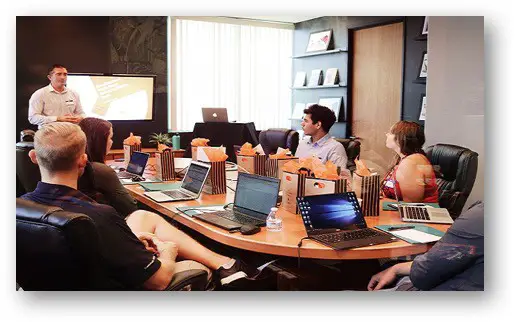
55 Job Interview Presentation Topics
The good news is that shouldn’t be the end of the world. That nightmare can turn into a dream with prior preparation and research.
There is a growing trend in some companies when recruiting, where they ask their interviewee to give a presentation as part of the interview process, and they either give the topic to them or ask them to come up with one.
The person applying for the job can use the time before the interview presentation date as an advantage to research and prepare for acing the presentation.
When choosing the topic, one thing to have in mind is the position to be filled, which will help when deciding what to present to the interviewers, as the topic should be related to the position. Otherwise, it will deviate everyone’s focus.
After quick and thorough research, it is possible to come up with basic information about the company and position offered to choose the topic for the presentation.
I have had a lot of success in preparing my job presentations or case study presentations and landing the job offer, it comes natural to me, but also, I take a lot of time to do research and structure the presentations in a compelling and exciting way. It takes time to master that skill, but don’t despair, because you can get help with your PowerPoint presentations from experts. Contact the guys at Custom Writings , they’re a presentation writing service which will handle your project on any topic.
Having said all that, let’s look at 55 ideas from 11 topics (5 for each) for a job interview presentation.
- Arts and Culture
- Sustainability
- Human resources
Each one of the topics above can be a broad theme and be related to anything and everything, though they can be focused on specifics of a job description, for example, to meet the expectations of the interviewers and judge how good your research about the topic and the position is.
Related Posts:
10 Dos and Don’ts for Job Interview Presentations
What Makes a GOOD Job Interview Presentation? 7 Key Aspects
8 Valuable Tips for Unemployed Fresh Graduates (Or anyone really)
9 Tips for Delivering a Stellar Case Interview Presentation
11 Great topics for a job interview presentation
1. arts and culture.
Arts and culture involve many aspects of society, such as music, movies, performances, TV, literature, and so on.
When presenting a topic about Arts and Culture, the audience will probably be familiarized with it. Again, research will be crucial here. It is absolutely important that the presenter knows what he/she is saying. Thorough research will get that job done.
Arts and Culture Job Interview Presentation Topics:
- How to get more people to read books?
- Learning foreign languages as a preventive measure when traveling.
- How important are museums for local communities?
- Are movies harmful to child education?
- How to improve music’s efficacy as a language learning tool?
2. Business
Topics in the business section will be focused on people and positions in the corporate world, leadership, management, human relations, communications, and similar subjects. This subject might need more research, and the data presented will have to be exact as those should be assumed to impact aspects of a real-time workplace.
The interviewers may see in a presentation an opportunity to find new ideas for issues they currently face in the company or even new working approaches to be applied. Serious research and real-time data presented in an interview can really help the candidate get picked for a position.
Business Job Interview Presentation Topics:
- How to make the workplace learning-friendly?
- Ways to make remote collaboration work.
- Improving communication between co-workers.
- How to measure the ROI in all Marketing campaigns?
- What are the best strategies to improve Customer Experience and loyalty?
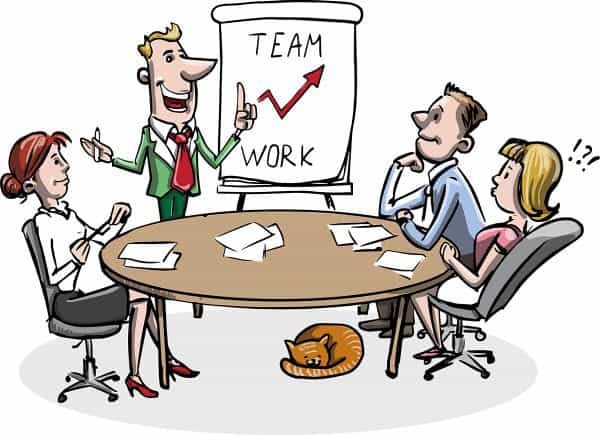
3. Education
Education is a subject that interests many, if not everyone. When being dealt with, one thing to keep in mind is that a quality education today will shape the future of a country and the world, what can be improved and what can change to make education better.
A lot has been said about Educational systems. All those opinions should be used to understand perhaps what is missing and see if things can change.
Education is a subject that can give a lot of options for research and problem-solving. It should be seen as an advantage to have this subject on hand.
Education Job Interview Presentation Topics:
- The impact of a parent’s engagement in school life.
- How do curriculum changes affect the process of learning?
- Homeschooling: is it better than the traditional education system?
- Does remote education work? How to Improve it?
- Secular Education: Obsolete?
This is a subject that also interests many, and if well presented, can engage the audience right away. People are constantly thinking about ethics, and how something that seems good for a group of people can look bad to others. It can, at times, be intriguing too.
If you bring in the right questions and get people to wonder, you will definitely engage whoever is listening.
That is an opportunity to call the attention of interviewers to research results and interesting finds about ethics. Since ethics involve some critical thinking, it creates an opportunity to showcase some of it to the audience too.
Ethics Job Interview Presentation Topics:
- Should cities have cameras in the streets?
- 3-D printing and development of human organs.
- Death penalty: does it solve the problem?
- Is taking gifts from your business partners anti-ethical?
- Is love in the Workplace forbidden? Can we control our emotions?
Science is also a broad topic related to researching and bringing results in certain areas. Trying to understand the world, its creation, and how to make it better through analysis hypothesis and experiments with elements found in nature.
Science topics to be chosen will be broad and involve every aspect of life to be known.
Science Job Interview Presentation Topics:
- How was the planet created?
- Immortality: does it align with nature’s ways of working?
- What is “Dark Matter” and why is it important?
- Is climate change going to render our planet inhospitable in 50 years?
- How can we save the World from the next global pandemic?
6. Sustainability
The subject of sustainability is a very interesting topic that has gained a lot of attention recently due to proposed changes to help decrease the effects of global warming. It should not be only important at certain times though.
It should be adopted forever, as that is the only way to co-exist with the biosphere to both meet our needs and not jeopardize nature, and this way, future generations can enjoy a planet like the one we found and even better. So this subject can proportionate a broad choice of topics as well.
Sustainability Job Interview Presentation Topics:
- How to adopt sustainable approaches in our daily lives?
- What are ways to promote a sustainable lifestyle among students?
- To what extent are catering and food products certified as organic or fair trade food?
- Fossil fuels vs Renewable Energy: How sustainable it is to use only one of them?
- Donations to poor countries and its impact on future generations
7. Technology
When the subject is technology, the thing that comes to mind for almost everyone is the digital era. A lot has changed and is still changing; many sectors adopt these changes in their environment and would be interested in knowing more about the so-called technology and how it would help them in the digital era.
Technology Job Interview Presentation Topics:
- The impact of social media in the development of children.
- Is 5G more important than people’s health?
- Is AI necessarily an enemy for humanity?
- How can we use Data Analytics for Improving Decision Making?
- Is Zoom really an unsafe collaboration and video calling tool?
Society is another subject that will resonate with everyone, and that can be used as an advantage as there can be many topics to choose from. How people relate within a community and how those relations are seen by the ones in it.
It is crucial to improve relations in society, as the individuals will constantly interact with one another.
Society Job Interview Presentation Topics:
- Are we doing enough to end poverty?
- Volunteering in your community.
- Race relations need to be improved.
- How to improve malnutrition in Africa?
- Are the Indigenous people being treated fairly?
9. Human resources
The personnel responsible for recruiting people capable of doing the required job; training the recruited people; promoting a good working environment, and monitor performance.
This subject will be narrowed to aspects of companies. These will need people capable of selecting from a broad group, the ones that fit with the job description.
Human Resources Job Interview Presentation Topics:
- Creating a stress-free environment.
- Balancing HR Strategies with business growth.
- Harassment of women in the workplace.
- Career Progression Plans
- Effective Succession Planning
10. Nutrition
A lot of people only think about food upon hearing the word nutrition. Well, they do not deviate from the subject. Though how and what people eat will influence their body, mind, and spirit, there are researches that prove that food, for example, influences the mood of a person.
So a company dealing with food or health might want a candidate to present the results of research in this area. Influences of nutrition in other areas of life would then be attractive to interviewers operating in this area.
Nutrition Job Interview Presentation Topics:
- Habits of food purchases and association with diet.
- Practice and application of knowledge by nutrition students.
- Childhood Obesity: Possible causes and solutions.
- Organic food vs. Processed Food: How to keep the balance?
- What is the most effective way of reducing weight beyond your 30s?
11. Logistics
The process involving the organization and transportation of goods from one point to another is what logistics comprise. These goods need to be safely handled during transportation and storage until handed to customers.
Companies should focus on collaboration between the transport providers, the buyers, and the vendors in order to have a good final result.
Logistics Job Interview Presentation Topics:
- Transportation as a Vital Aspect of Logistics and Supply Chain Management.
- Radio Frequency Identification: the Use of a Minuscule Computer Chip to Track the Product.
- Recruiting quality drivers for your trucking company.
- Internation ship cargo tracking
- How to expedite the Customs Clearance process?

In conclusion,
There is a broad range of topics to be chosen or, in some cases, given. All one has to do is dedicate some time before the interview to research the topic and develop some good ideas and facts to ensure the interviewers get interested and engaged in the presentation.
A reliable and facts-rich presentation might save the candidate a spot on the company. It can all be resumed to good research, one that goes to the roots of an issue and brings answers and solutions to be taken into consideration.
Similar Posts

Why becoming an Expert at Note Taking is Important for Your Career?
In a world where information is just a button away, it’s quite hard to keep up with writing down notes. Take a minute and look around your meeting space. How many people are actually writing in a notebook? Better yet, are they taking down diligent points or doodling? In today’s article we will be looking at…

5 Reasons why you’re never called for a Job Interview
Who never wanted to know why they’re never called for a job interview, right? The vacancy ad is there, and you make the resume, send it and spend an eternity waiting for a response that never happens. If the situation is recurring, it is essential to reflect on why companies are not feeling interested in…
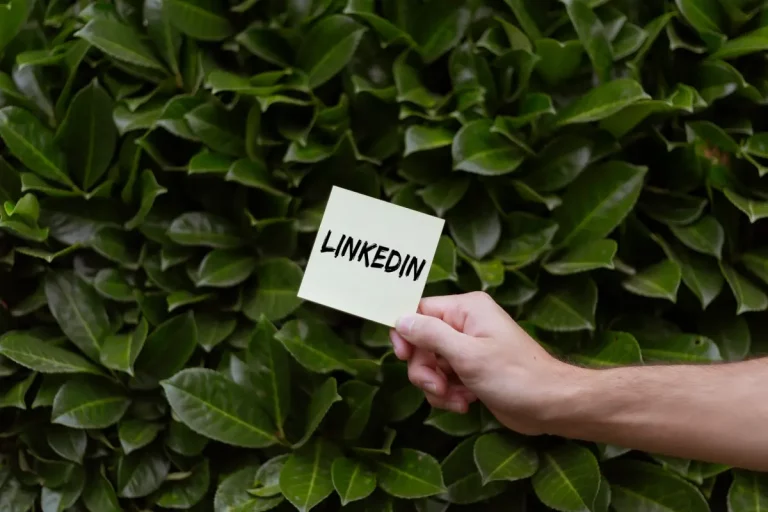
LinkedIn: Learn about it and Use it for Professional Growth
Have you ever stopped to think about how CVs were created back in the day? Everything changed when we included professional information within a single platform: LinkedIn! Today, you can’t go without knowing what LinkedIn is and all the possibilities you can have with this social network. But the truth is that it’s been a…

How to Become Better at Business Communication – 5 essential tips
How to Become Better at Business Communication As I was thinking about today’s blog post, a few memories came to mind, about when I was starting as a freshly graduated engineer working at one of the best companies in the IT industry and had no clue about what is business communication. I have had two…

Communication Skills Guide: Examples of 11 Good and 8 Poor ones
Having effective communication skills is essential to every aspect of life, from going through school/college, to simply sharing ideas, speaking in public, nailing an interview, for better prospects in bidding proposals and whether we like it or not, we sometimes have poor communication skills. Well, it is not wrong to accept it; in fact, it…

15 Solid Public Speaking Tips for Women
Women differ from men in a number of ways. One of such ways is the manner each of them makes speeches and conveys information. We will be discussing below, a couple of public speaking tips for women, so that more women can harness and polish their public speaking skills. Men are more of natural orators…

Table of Contents
How to win the product manager presentation interview.
- October 8, 2018
Kristen Miller

In the final round of your Product Manager interview , you will be expected to prepare a short presentation walking the interviewer through a product strategy you developed and are proud of. Before diving into your preparation, give yourself a pat on the back for making it this far in the interview process! Carry this boost of confidence with you into your presentation to win the Product Manager job of your dreams.
For this podcast, we asked Tony Rudeen , Director of Product Management at Dutchie to help us navigate a standard Product Manager presentation. Listen along as we break down what you need to know about the Product Manager interview presentations.
What Is the Interviewer Looking For?
Please prepare a short presentation that will walk us through a product strategy you developed that you are particularly proud of.
Your Product Manager interview presentation should include the following:
- The problem you are trying to solve or opportunity you are seizing
- The way it fits into the organization’s mission, goals, or KPI’s
- Explain where the strategy originated and why you’re proud of it
- Explain a key design decision that positively impacted the product
- Share an example of a technical challenge, roadblock, or constraint that influenced the product
- Highlight your role on the team and your contribution
- Reflect on what went well and what you learned from the process
- If possible, share screenshots or a demo
While the information you provide in your presentation is tremendously important, the company is not solely concerned about the data. They are evaluating your ability to give a presentation that is part strategy and part execution. You want to show the team you can communicate effectively by familiarizing and explaining your concepts to people who may know nothing about your project.
The presentation is not just about your accomplishments and achievements, it is about how you are able to communicate them to others.
Product Manager Presentation Interview Step 1: Choosing the Problem
Most business problems fall into one of two buckets: growing revenue or cutting costs. Saving time is another attractive problem to solve. These are the most macro-level business problems and, whether you have a product management background or not, you likely have experience in contributing solutions.
Presenting a problem you have solved related to growing revenue may be slightly more attractive than problems of cutting costs because there is no real cap on growth. For example, you can only cut costs so low while still running a business and selling a product. You will never be able to cut costs down to zero. However, you can grow your revenue far beyond any foreseeable limit or goal the company has set. There is more opportunity to exceed expectations when you are talking about growing revenue.
You want to show the interviewers how you can find a problem and portray a solution while also meeting metrics and company goals.
Interview Presentation Step 2: Presenting the Solution
Every company has a unique mission and focused set of goals or KPI’s. Your goal metrics will vary depending on your industry and your function within the company. It’s important to present metrics that line up with the problem you are solving.
Even without a technical background, you can explain a key design decision that positively impacted the product. The easiest answers are UX-related. Small, incremental changes greatly affect the metrics over time and are a great example to give in your presentation. If you do have a technical background, you can also give a more technical design perspective.
Interview Presentation Step 3: Highlighting a Roadblock You Overcame
One of the key aspects of your Product Manager interview presentation is sharing a challenge or roadblock you overcame that influenced the product. For example, a time when you presented the solution to a stakeholder and they completely rejected the idea. Explain how you were able to work with the stakeholder to find a solution that works for them. Identifying what didn’t work well in your last project and acknowledging it in your presentation shows the interviewer you can learn from your mistakes and will apply what you learned to your next product.
Win the Product Manager Presentation Interview
For more interview tips and presentation preparation, schedule a free coaching call with a Product Gym career coach. Together we can identify your strengths and highlight your skills to help you land your Product Manager dream job.

The Only Leading Metric to Measure Product-Market Fit and How to Use It
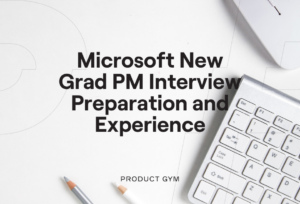
Microsoft New Grad PM Interview Preparation and Experience: Spring 2022

Types of Product Managers: Which Specialization Will Ignite Your Career?
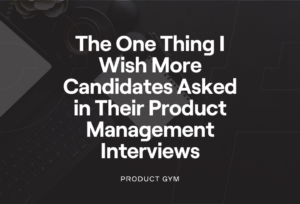
The One Thing I Wish More Candidates Asked in Their Product Management Interviews
1412 Broadway, New York City, NY, 10018 (800) 978-2719
Notice: We do not currently accept members with Utah residency.
© 2023 ALL RIGHTS RESERVED.
Terms of Service Privacy Policy
8 Common Manager Position Interview Questions & How to Answer

The recruitment process for managerial positions can be a daunting one. From candidates who haven't been in a leadership role before, to individuals who have several manager roles under their belt, many find interviews stressful. No matter where you fall on the managerial-experience spectrum, we're here to help you ace your interview.
So, what do hiring managers look for?
Our guide covers frequent questions they might ask, and strategies for how you should answer based on tips from top industry recruiters and business managers in the spaces of conventional energy, life sciences, mining, and renewables. From leadership to interpersonal skills and strategic thinking, we provide insights and strategies to prepare you for success.
Here are our top 8 common interview questions for managers and how we think you should answer them:
1. Can you tell us about your management experience?
Why it's challenging:.
Many people find it difficult to accurately describe themselves in a way that highlights their good qualities and makes them a strong candidate.
How to answer it:
Start by summarizing your overall management experience. Mention the industries you've worked in, the size of teams you've managed, and the types of projects you've handled. Then, delve into specific roles and achievements. Discuss the challenges you faced, the strategies you used, and the results you achieved. Including concrete numbers of percentages that highlight your growth is also a great way to present yourself as a professional driven by tangible success.
- Example: "In my previous role as a sales manager at XYZ Corp, I led a team of 15 sales representatives. In my first year, our team exceeded our sales targets by X%, by implementing effective sales strategies and fostering a high-performance culture."
Make sure this is all covered effectively in your resume, too. If you need some pointers, we've got tips for how to refine your resume with AI .

2. How do you define your management style?
This question aims to understand your approach to managing teams. It provides insights into your leadership philosophy and how you interact with your team. It might be tough to find a few words to adequately summarize your leadership strategy.
Discuss the key principles that guide your management approach. Be concise and select 2-3. These could include open communication, empowerment, accountability, or continuous learning.
- Example: "I would describe my management style as participative, and results driven. I believe in involving my team in decision-making processes and setting clear performance expectations."
If you're able to connect your management style to the company's cultures and values, do so! This will create a great tie-in and let the management team know you are interested in joining an organization that aligns with your personal beliefs.
Looking for your next role?
Explore our related vacancies
3. what strategies do you use for team motivation and handling conflict.
It's never easy to discuss conflict or manage teams that lack motivation, especially if you feel like you could've done a better job of navigating the situations.
Most managers can tell you of times when their teams lacked motivation or encountered conflict, but it's important for you to think back to your most resilient moment.
Explain your approach to conflict resolution in a tough situation that led to your team's success. Highlight your ability to facilitate open communication, mediate disagreements, or foster a positive work environment.
Then, discuss the strategies you used to keep your team motivated in the face of challenging times. These could include recognition, feedback, career development opportunities, or team-building activities.
- Example: "When handling conflicts, I have found that encouraging open dialogue is key. By scheduling more frequent one-on-one's and striving to find win-win solutions, I've been able to navigate and resolve team conflict. To motivate my team, I regularly recognize their efforts by sending out personalized emails and I plan team outings in the wake of big accomplishments."

4. Describe how you prioritize work and delegate tasks
This question seeks to understand how you manage workload and resources. Too much delegation could frame you as inexperienced. Too little could frame you as being a perfectionist.
First, disarm this question by explaining your approach to prioritizing work in a general sense. You could mention factors like deadlines, business impact, team capacity, or strategic alignment. Then, discuss how you delegate tasks. Highlight your ability to match tasks with team members' skills and development goals. Do not forget to mention the active role you play in ensuring tasks are completed more effectively.
- Example: "I prioritize work based on its urgency and impact on our business goals. When delegating tasks, I consider my team members' strengths and areas for growth. I serve as a mediator, but also employ my strengths in specific technical skills by actively working on pieces of the project alongside my team."
5. How do you handle underperforming employees?
Assessing one's response to failure is a challenging task. It demands humility and introspective capabilities, traits that are demonstrated when you respond to this question, even if the failure is not your own. It can be tough to not blame yourself if a member of the team you manage is underperforming, and you might fear your response will shed a bad light on you, no matter the outcome of the situation. Top management recruiters, like the ones at Brunel, know the importance of answering this question well, and are well-versed in strategies to tackle it to help you find the role you're best suited for .
Discuss how you identify performance issues, provide feedback, and develop improvement plans. Try highlighting your ability to assess team performance in an unbiased manner. Highlight your commitment to supporting your team's development. Mention examples of how you've provided coaching, training, or mentoring to help your team out of a slump.
- Example: "I track my team's performance with set KPI's. When managing the underperformance of a specific employee, I first try to understand the root cause. I then provide clear feedback and work with the employee to develop an improvement plan with recurring check-ins."
Explore all Brunel's open jobs
6. can you give an example of a successful project you've managed.
It might be tough to keep this brief while highlighting all your points of success.
Choose a project that demonstrates your ability to achieve results. Discuss the project's objectives, the challenges you faced, and the strategies you used. Then, highlight the project's outcomes. Mention the benefits it brought to the company, such as cost savings, revenue growth, or process improvements.
- Example: "In my previous role, I managed a project to streamline our sales process. This resulted in a 20% increase in sales efficiency and a significant boost in customer satisfaction."

7. How do you align your team with company goals and values?
This might not be something you think about doing all the time.
This question assesses your strategic alignment skills & how you ensure your team's efforts support the company's objectives and culture. Discuss how you communicate company goals and values to your team. Mention how you incorporate them into team objectives, performance metrics, and daily operations. Then, highlight how you role-model company values. Discuss how you promote a culture that reflects these values.
- Example: "I regularly discuss company goals and values with my team in our weekly team catch-ups. I ensure our objectives align with these goals and I strive to embody the company values in my leadership."
We're hiring! Learn more about Brunel's culture & values .
8. What is you approach to handling stress and pressure?
This question evaluates your resilience and stress management skills. It seeks to understand how you maintain performance and well-being under pressure and can feel a bit personal.
Describe the strategies you use to manage stress. Keep your response professional and high-level, but giving insights into your self-care routine could allow the hiring manager to get to know your interests outside of work. This helps establish rapport.
- Example: "Being in a leadership position is something that can cause tension and stress. To be sure that I'm operating at the top of my game within my team and the organization, I've found meditation and a regular workout schedule allow me to manage my wellbeing."

The STAR Method for answering behavioral questions
If you are struggling to formulate responses to these or other interview questions, the STAR method is a useful strategy. It stands for: Situation Task Action and Result.
You start by describing a Situation you faced. Then, you explain the Task you need to accomplish. Next, you detail the Action you took. Finally, you share the Result of your action. This method helps you provide structured and detailed responses. It allows you to display your impact and keeps you from going on for too long when time might be limited in your interview.
In conclusion, navigating a manager position interview successfully requires thorough preparation and a clear understanding of what hiring managers seek in candidates. It is not just about answering questions but demonstrating leadership skills, strategic thinking, and a strong commitment to the role. By following the strategies and insights provided in this guide, you are well-equipped to make a lasting impression and succeed in your next interview. Good luck on your journey!
Be sure to check out more of Brunel's career resources
10 minute presentation for a job interview

A key part of interviews nowadays is to ask prospective applicants to carry out a 10-minute presentation. In this question and answer article, we asked our readers to see if they had any advice for these kinds of presentations.
I’ve just been told that I have a job interview next Wednesday. I need to do a 10 minute presentation in front of the other candidates followed by a formal interview. The topic of the presentation is “What I can bring to this position” and “How will I adapt to make my job successful”. I’ve never had to do anything like this before and I just don’t know where to start!
Question by Sarah K.
I am also preparing for an interview myself. I have to present myself and let them know what will I bring to the team. I have started my report by saying who am I, my academic background and now I am thinking of talking about my business qualifications and how my present job experience helped me be more responsible, organized, problem solver ext. I will present some cases where I was very much involved and that will show my professional attitude and mentality.
Answer thanks to Stefan.
I have been offered the following advice for my ten minute presentation for an interview this coming Tuesday, so I’m sharing it with you. I will be given the topic and given an hour to prepare it.
The structure:
Tell them what you are going to tell them.
Tell them what you told them.
You should use minimal flip charts or slides, no more than 4 I would aim at 3 if possible.
- Start with an introduction “I am”, “I will be talking about … and I will allow time for questions (at end).”
- Depending upon what subject you get you may wish to consider using the SWOT analysis method of delivery which should contain about 3 or 4 Strengths, Weaknesses, Opportunities and Threats. I often find subjects or the questions asked don’t fit easily into SWOT and should that be the case it is perhaps best to use the rule of 3.
- Pick what your Focal point will be i.e Our Company should wear green ties not red ties.
- Presuming that you will be given a flipchart at least, I would divide the body of the presentation into three points, and use a separate flip chart for each point. For example, discussing the cost, availability and quality.
- Conclude with a summary backing up your point and maybe even a catch phrase or saying.
Other notes of advice:
Adhere strictly to time, try not to over complicate it, don’t talk to the flip chart, and practice if you have time. In terms of preparation before the day, rack your brains for questions and practice it at home. This will mean that your introduction will essentially be the same and a little bit like a ‘fill in the blanks’.
Answer thanks to Rach.
10 minutes on why I applied and why I am an ideal candidate.
In a couple of weeks, I will have to give a 10 minute presentation for a prospective job opportunity. I have to answer two questions in this presentation, why I choose to apply for the job and why I am an ideal candidate. I have done some research on the company and have a decent response for the presentation but I have recently found out there are a lot of other candidates and feel I need a hook or theme that the panel will remember and identify with. Do you have any ideas on how I can come up with a suitable ‘hook’ for the presentation.
Question by David Baughan.
It is good to see you have done some research on the company, as my best advice for you is to read the job application form and the company’s web site, see what kind of qualities they are looking for. Usually in their company description or job description they will have words like dynamic, honesty, integrity, and innovation in it.Try to use these and others adjectives you think are applicable in your presentation.
Answer thanks to Anita.
As much as possible use real live examples of why you are ideal, i.e. the challenges which you faced at your last company, some of which may face your prospective employers. Talk a little about the ways you have handled yourself and dealt with problems i.e., I handled this problem by using X, which resulted in Y. By doing this you are quoting experience, showing you understand their business, and sharing your knowledge… all good things to show in an interview.
Answer thanks to Amy Brown.
Three successes and one failure presentation
I have to give a 10 minutes presentation tomorrow for a job interview. It has to be based on 3 successes and one failure. I’m going to concentrate on job related issues. Does anyone have any tips on how to pitch this?I have been advised to follow the Situation, Task, Action and Result framework for each item to ensure that I demonstrate the competencies required by the interviewers, but I’m worried that the presentation will end up being too detailed.Also, any views on how I should order each item? ie shall I cover the failure item last or is that too negative?
Question by Mandy Tipp.
The best way to present a failure is to fail because of one of your strengths (e.g. I was so determined to get the job done on time, that we went slightly over budget) Effectively talk about the failure more as a trade-off, rather than as a failure. You don’t have to talk about your worst failure.Another one would be I lost the deal, but I was able to take the earnings and win the next one. Also don’t use the failure as the last item. It should go in the middle. People will remember the first and the last items, but not the ones in the middle. Ensure that you say what you learnt from that failure, and how to do it better next time.
Answer by Doctor.
Have you got any tips for a 10 minute interview presentations? If so leave them in the comments box below.
Recommended Pages

I have a job interview lined up and I have been told that I will need to do a 10 minute presentation explaining the following;
“How would you explain the importance of document management/control and its key elements to 5 year olds in a nursery school. What examples would you use?”
I could easily explain this to an adult, however I am really stuck on how to prepare a presentation for children. If any of you have some advice it would be greatly appreciated.
Please, please help!!!
I have asked to give a 10 minute presentation on specific questions. Do I go straight into answering those questions in the presentation or should I start by providing a short background on my career?
It depends on how many questions you have to answer, because 10 minutes isn’t very long to answer lots of questions. If you have been given 4 questions to answer, spend about a minute introducing yourself and then 2 mins per question, and a quick summary of a minute. These timings become smaller with more questions, or longer with fewer questions
Hi I have been asked to do an interview presentation on what I will find interesting, satisfying or challenging about the role, any ideas how to structure the 10 minute presentation?
- All Templates
- Persuasive Speech Topics
- Informative
- Architecture
- Celebration
- Educational
- Engineering
- Food and Drink
- Subtle Waves Template
- Business world map
- Filmstrip with Countdown
- Blue Bubbles
- Corporate 2
- Vector flowers template
- Editable PowerPoint newspapers
- Hands Template
- Red blood cells slide
- Circles Template on white
- Maps of America
- Light Streaks Business Template
- Zen stones template
- Heartbeat Template
- Web icons template

IMAGES
VIDEO
COMMENTS
Interview presentation templates are predetermined outlines that you can use to prepare for an interview presentation. Hiring managers may ask candidates to present on a relevant topic during the hiring process. This is especially likely in interviews for positions that may require frequent presentation, like a sales or teaching role. A ...
2. Professional Curriculum Vitae PowerPoint Template. This a sample of PowerPoint presentation template that you can use to present a curriculum and prepare for a job interview presentation. The PPT template is compatible with PowerPoint but also with Google Slides.
Here are the steps you need to take to improve your chances at an interview presentation: 1. Research the company and the position ahead of the presentation. Before the date of the presentation, research the company and the position you are applying for. Doing this will help you determine the type of pitch to create for your presentation.
In many industries, interview presentations help recruiters pick the best candidate for the job. They also help managers gauge a candidate's presentation skills, especially if the job role involves pitching to clients or top management. Interview presentations often involve presenting formal talks about subjects that interest recruiters.
Your outline should always include: A title slide with the name of the role or presentation task. An overview slide listing out the key points you will be covering. The main body slides to address ...
Make notes on the company or sector you will present for. It's crucial to be ready to discuss the topic you'll be given during the interview. The interviewer can gauge your understanding of the more significant business the company works in, so include current industry news in your notes. 4. Adopt a rational framework.
5. Scorecard. An essential part of any 90-day plan is building a report out. As you put your thoughts to paper, be sure to include the summary of actions, progress, and updates your manager will see each week. Design your report out in an easy to follow summary you can update each week. Think of it as a mini billboard of your accomplishments.
Try these steps for interview presentation success. 1. Know What You're Working With. As soon as you're asked to give a presentation, start by asking the hiring manager a few questions. Learn more about the topics you should present on, see how much time you'll have, and ask what technology, if any, you'll have access to.
Thoroughly read the brief, as the recruiter or hiring manager may have specified the length of time you have for your presentation. If they haven't given any indication, you should aim for 10 minutes, including time for questions and answers. For more tips on interviewing, read our article on 'interview tips & questions'.
Your presentation should only focus on issues that matter to her organisation. Their problems, their needs, their goals. You prove your value by directly addressing the problems/opportunities you ...
A job interview presentation is a common part of the interview process, and something we coach our candidates through every day. Here's how. 0208 629 6006; Twitter; ... You can always be up front with the interviewer or hiring manager you have been working with and ask them what they want to see from the interview. 11 Job Interview Presentation ...
Middle: tell them. End: tell them what you told them. Slide 1: Welcome the audience. Welcome people to your presentation by introducing them, saying what you will cover, assuring their comfort as observers, and asking them to leave all questions until the end. Slides 2-3: About me (education, past jobs, courses, skills).
JOB INTERVIEW PRESENTATION (How To Give A Brilliant Presentation In An INTERVIEW!) EXAMPLE INCLUDED! https://passmyinterview.com/how-to-give-a-job-interview-...
Logistics Job Interview Presentation Topics: Transportation as a Vital Aspect of Logistics and Supply Chain Management. Radio Frequency Identification: the Use of a Minuscule Computer Chip to Track the Product. Recruiting quality drivers for your trucking company. Internation ship cargo tracking.
Preparing your first 90 days in a new job presentation can be easy and straightforward, especially when you understand that your potential employer wants to know what skills you have. You can prove to them that hiring you is a good decision. Below are the steps for preparing your first 90 days presentation: 1. Begin your research early.
Interview Presentation Step 3: Highlighting a Roadblock You Overcame. One of the key aspects of your Product Manager interview presentation is sharing a challenge or roadblock you overcame that influenced the product. For example, a time when you presented the solution to a stakeholder and they completely rejected the idea.
Be concise and select 2-3. These could include open communication, empowerment, accountability, or continuous learning. Example: "I would describe my management style as participative, and results driven. I believe in involving my team in decision-making processes and setting clear performance expectations." .
In terms of preparation before the day, rack your brains for questions and practice it at home. This will mean that your introduction will essentially be the same and a little bit like a 'fill in the blanks'. Answer thanks to Rach. 10 minutes on why I applied and why I am an ideal candidate. In a couple of weeks, I will have to give a 10 ...